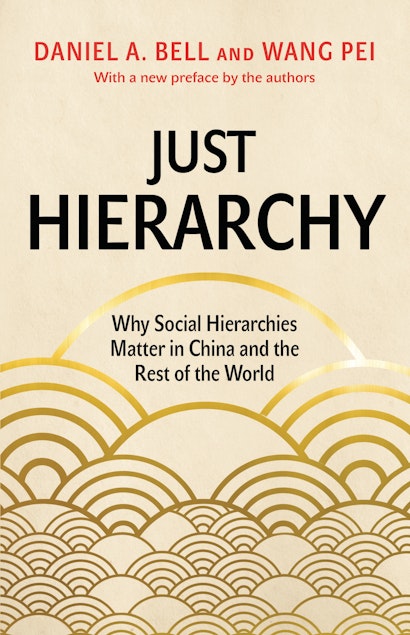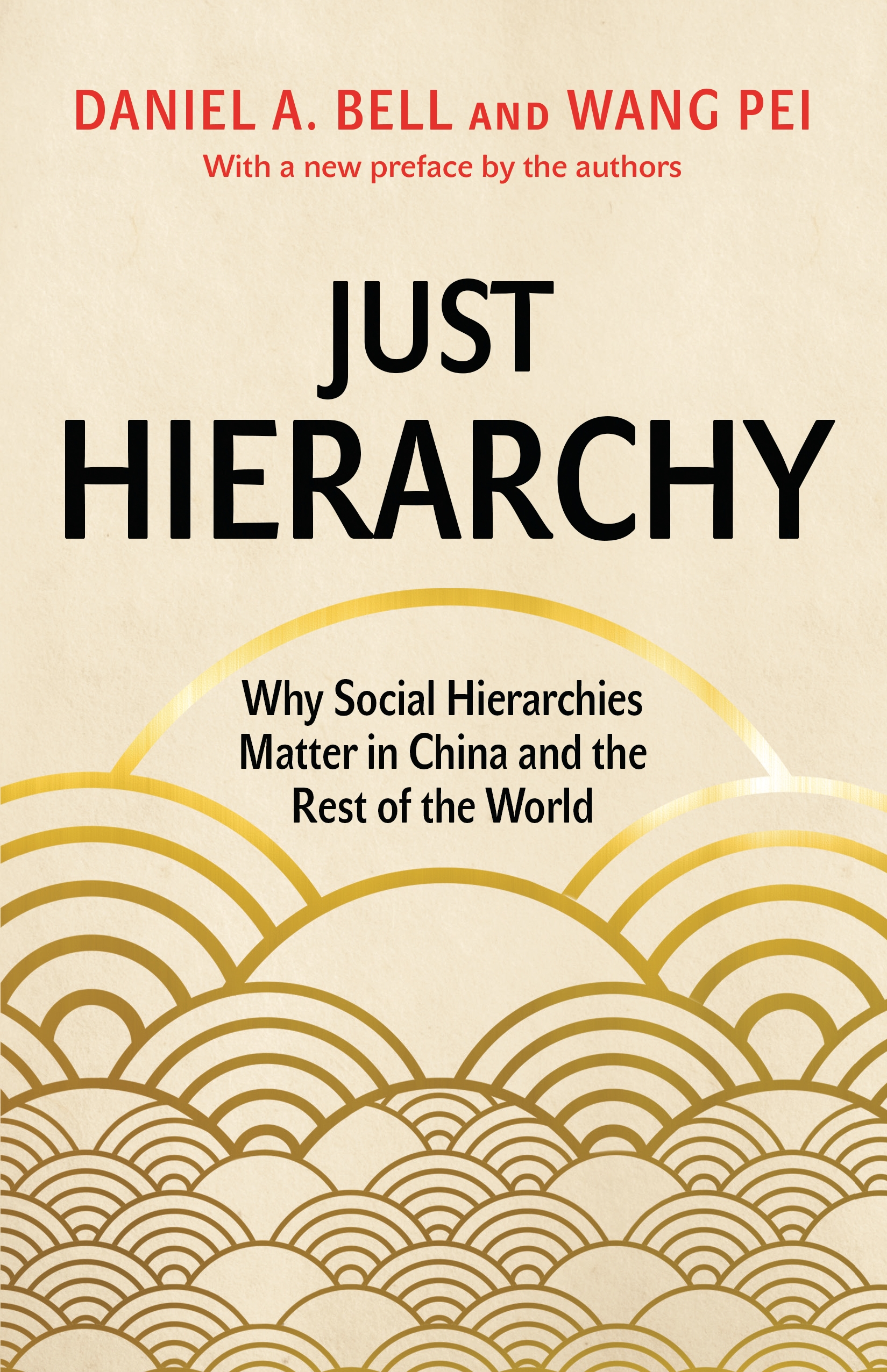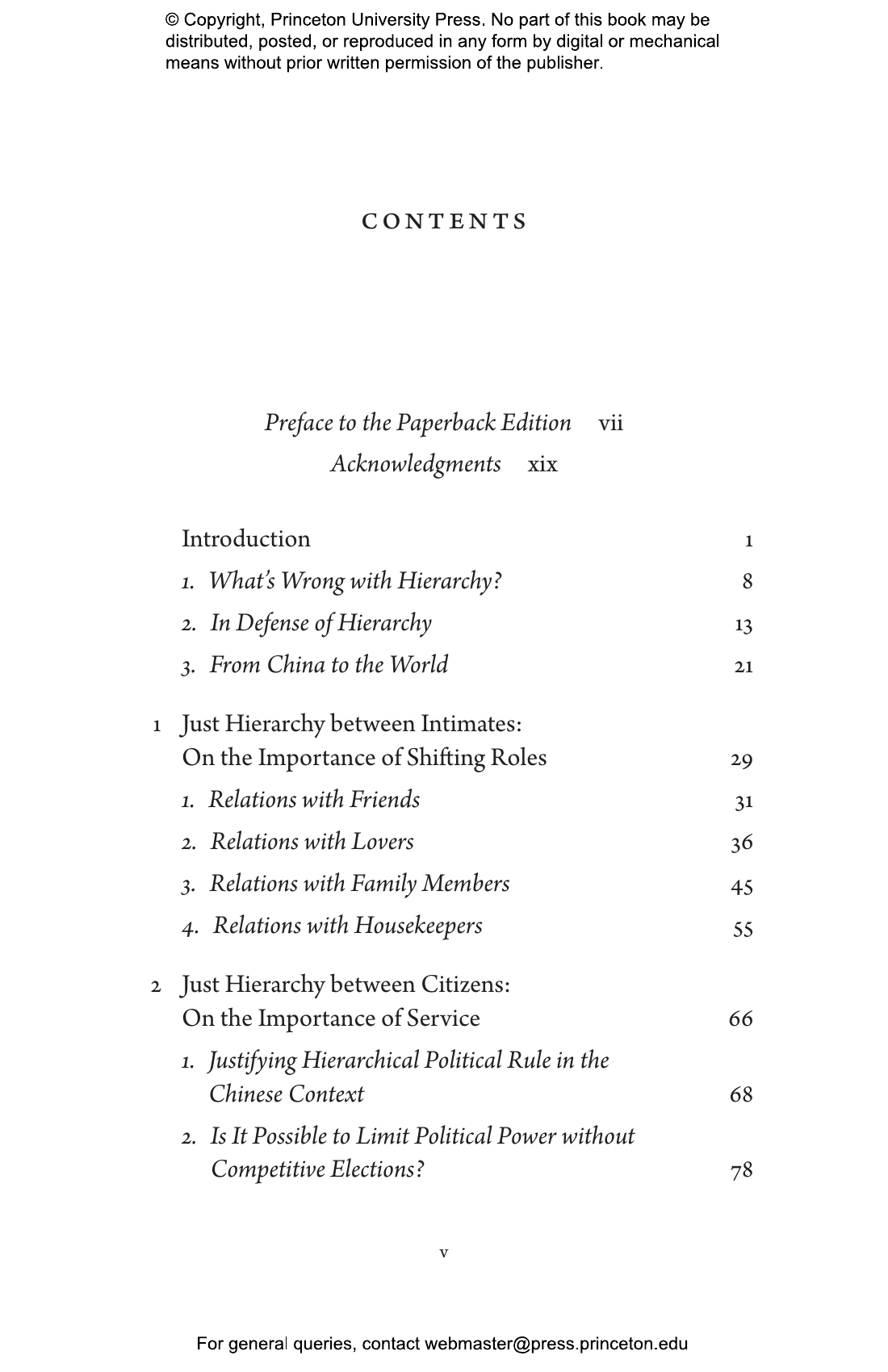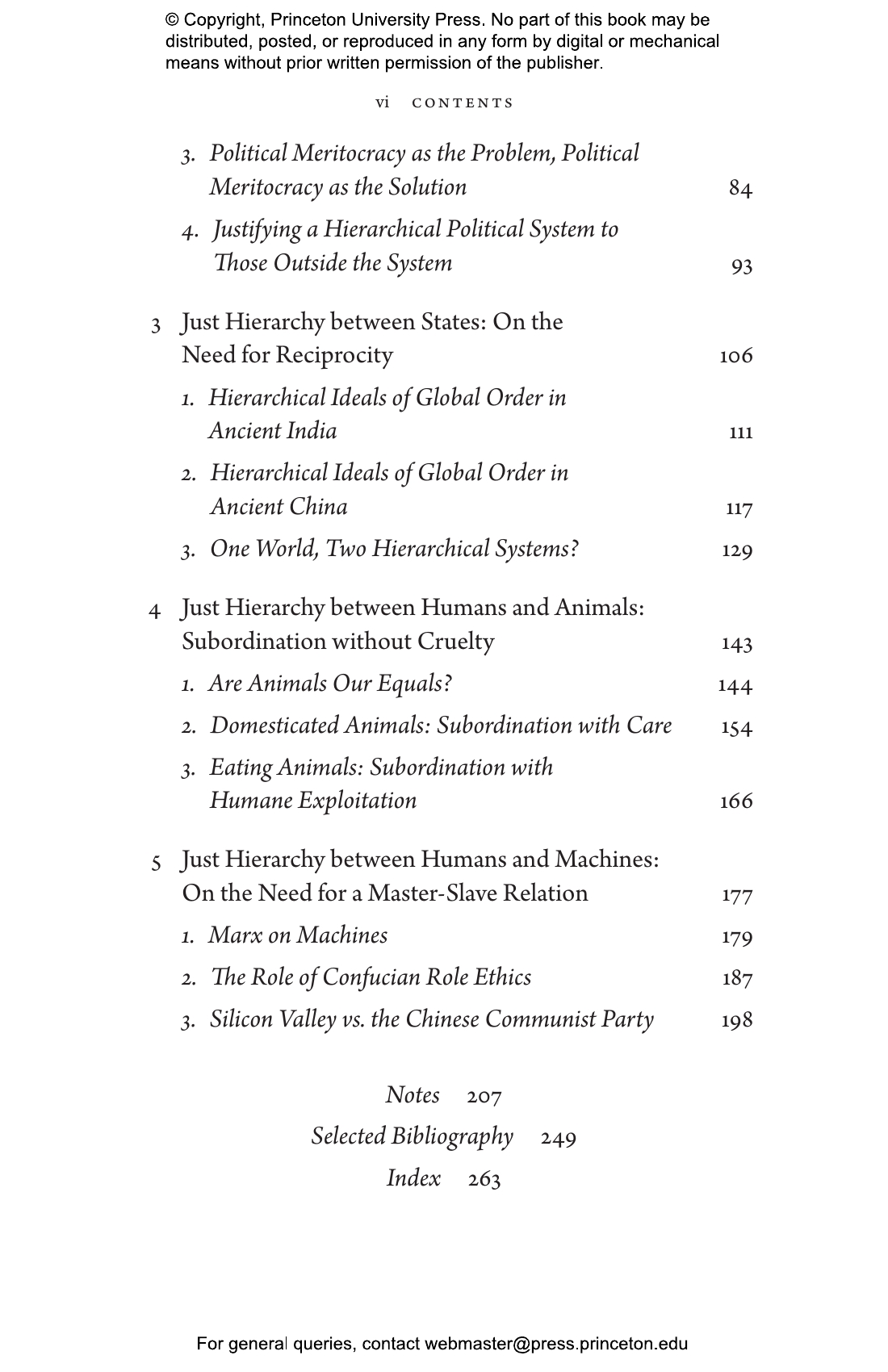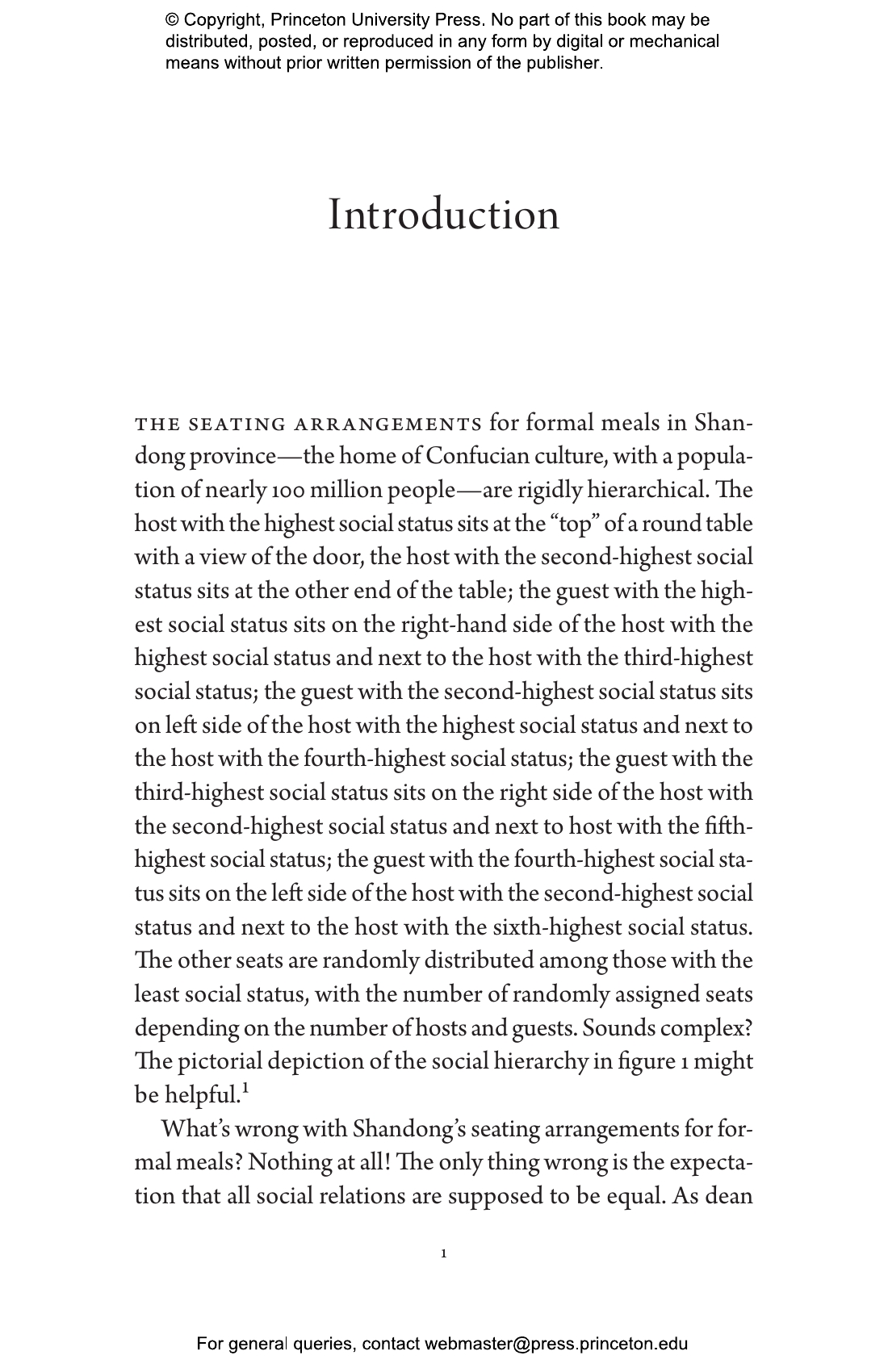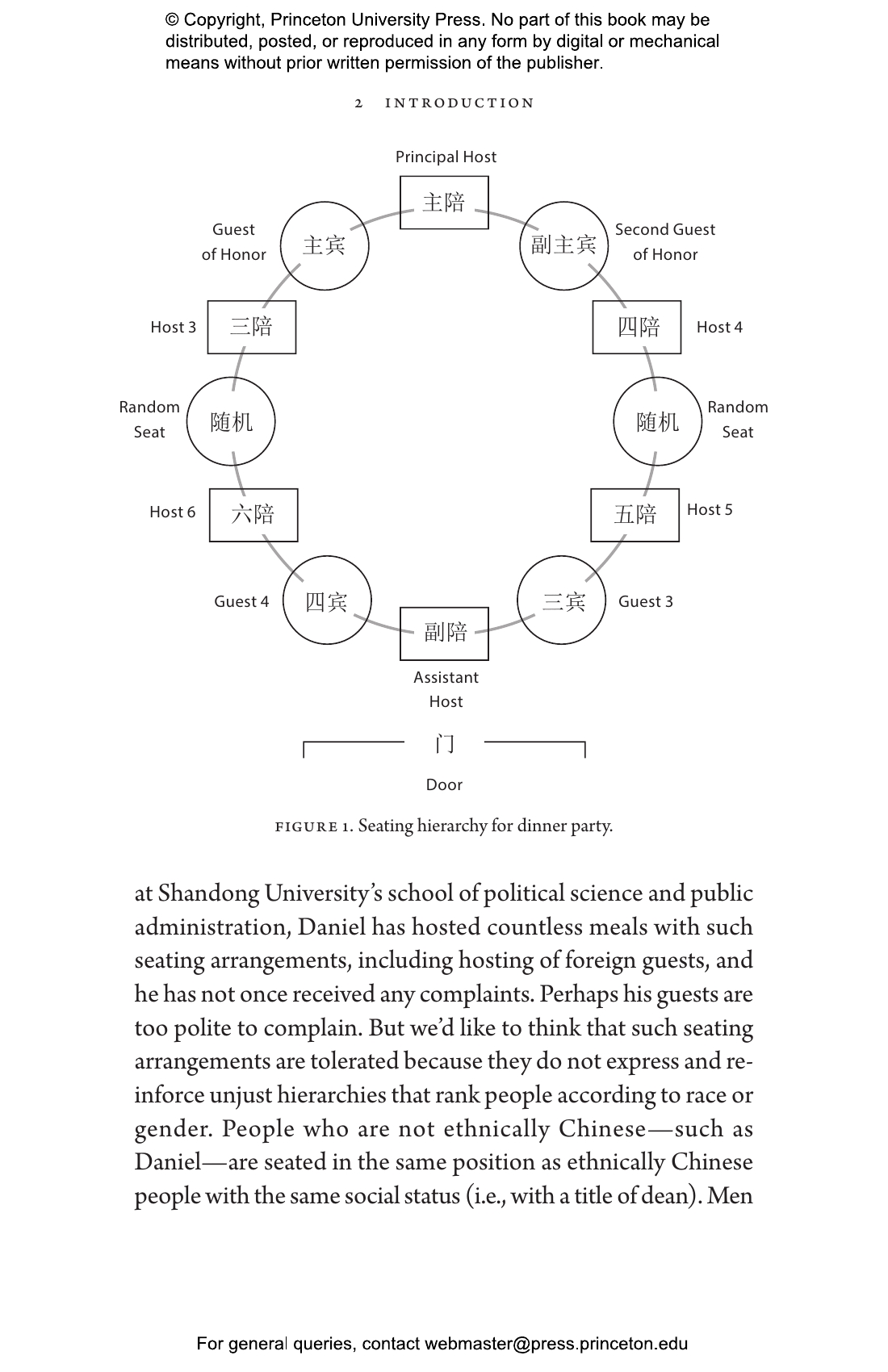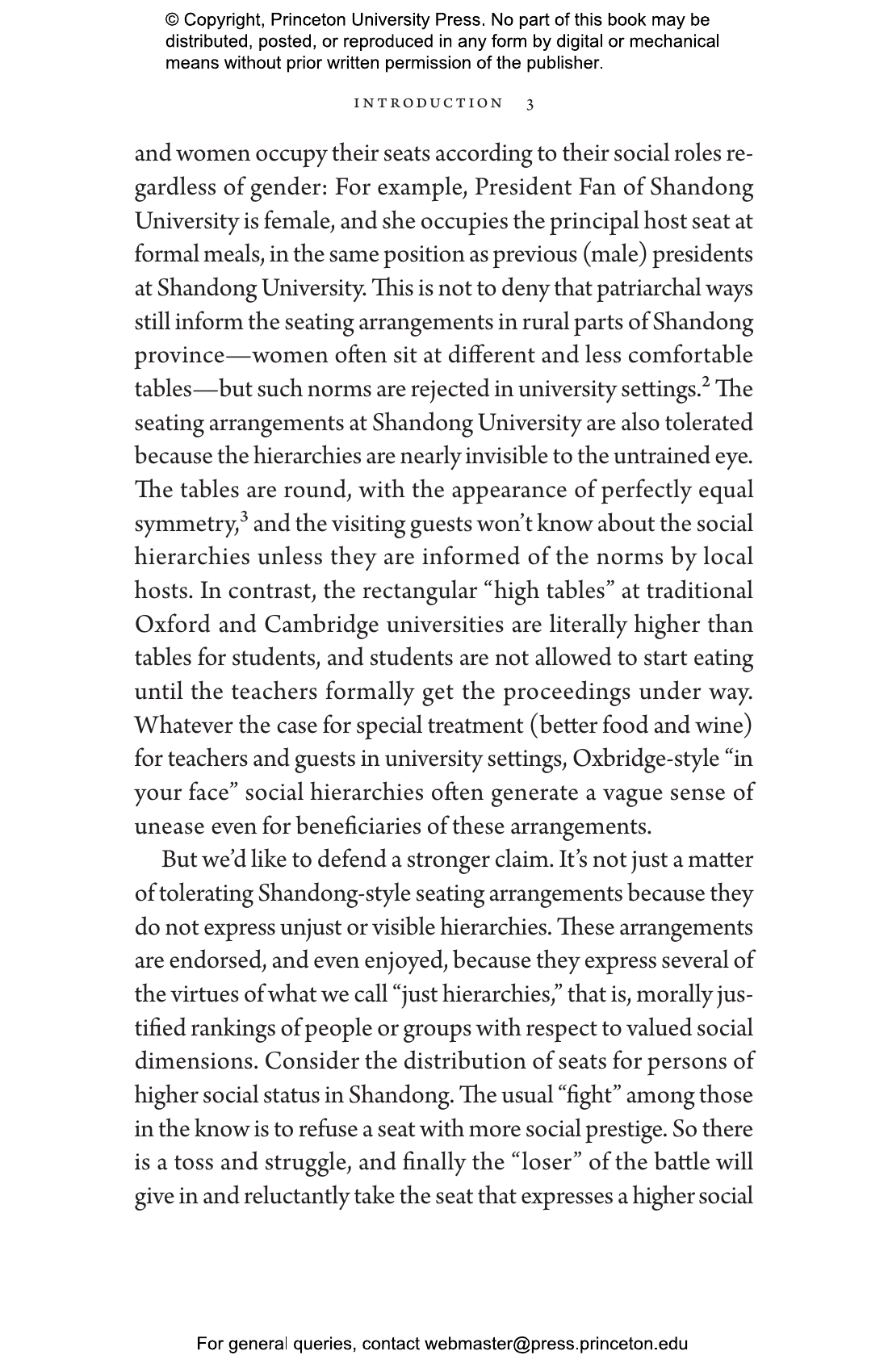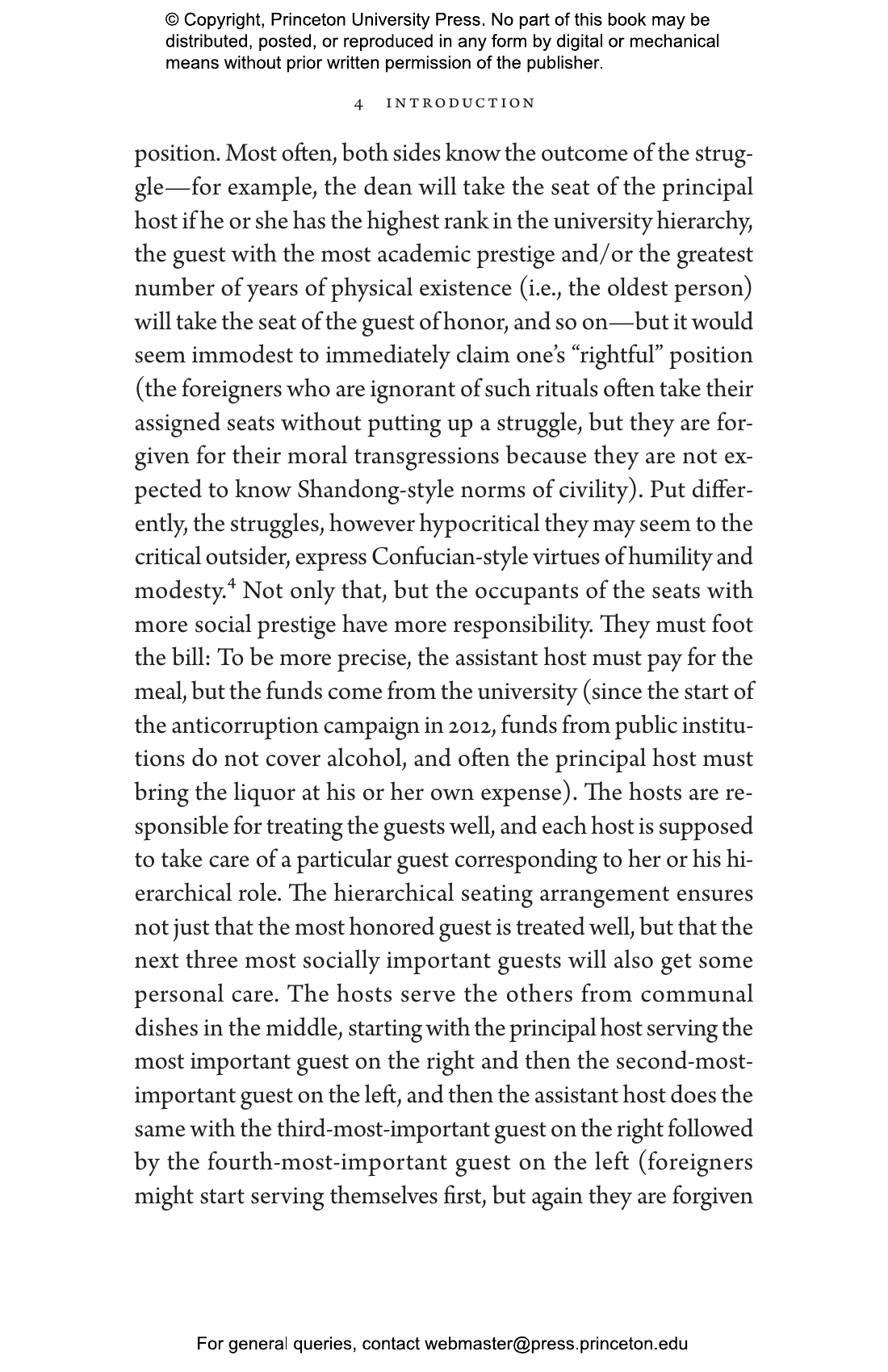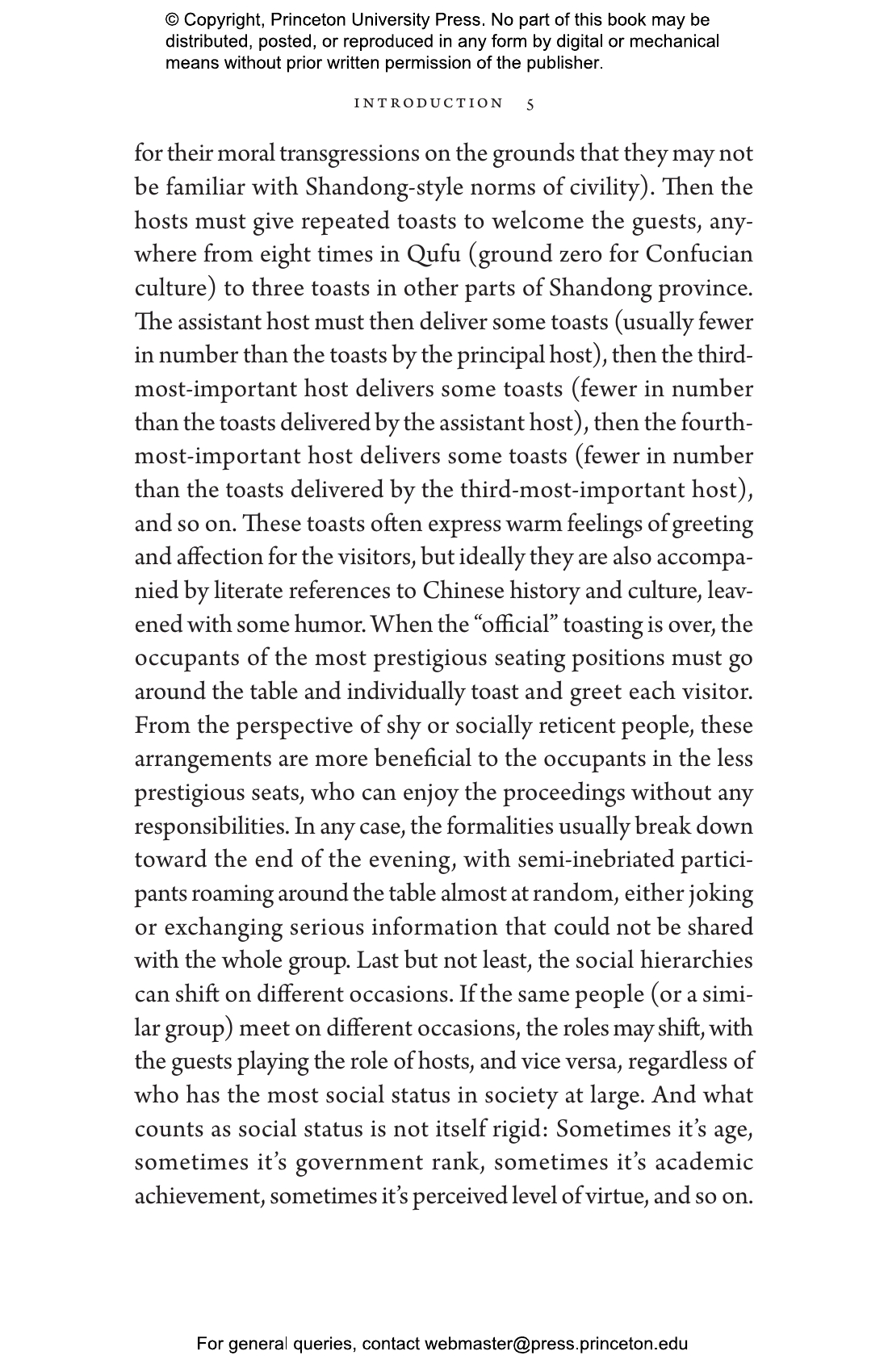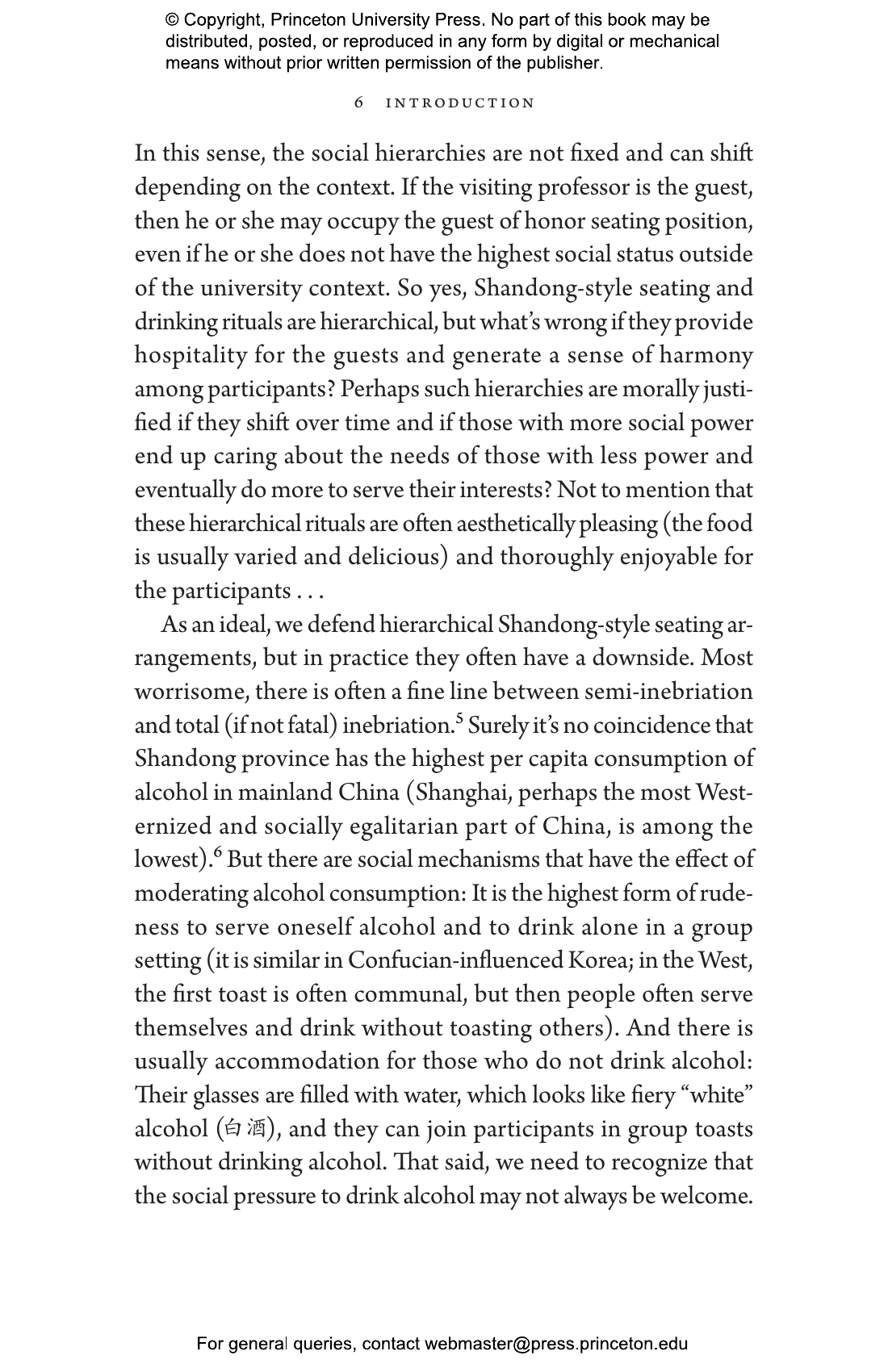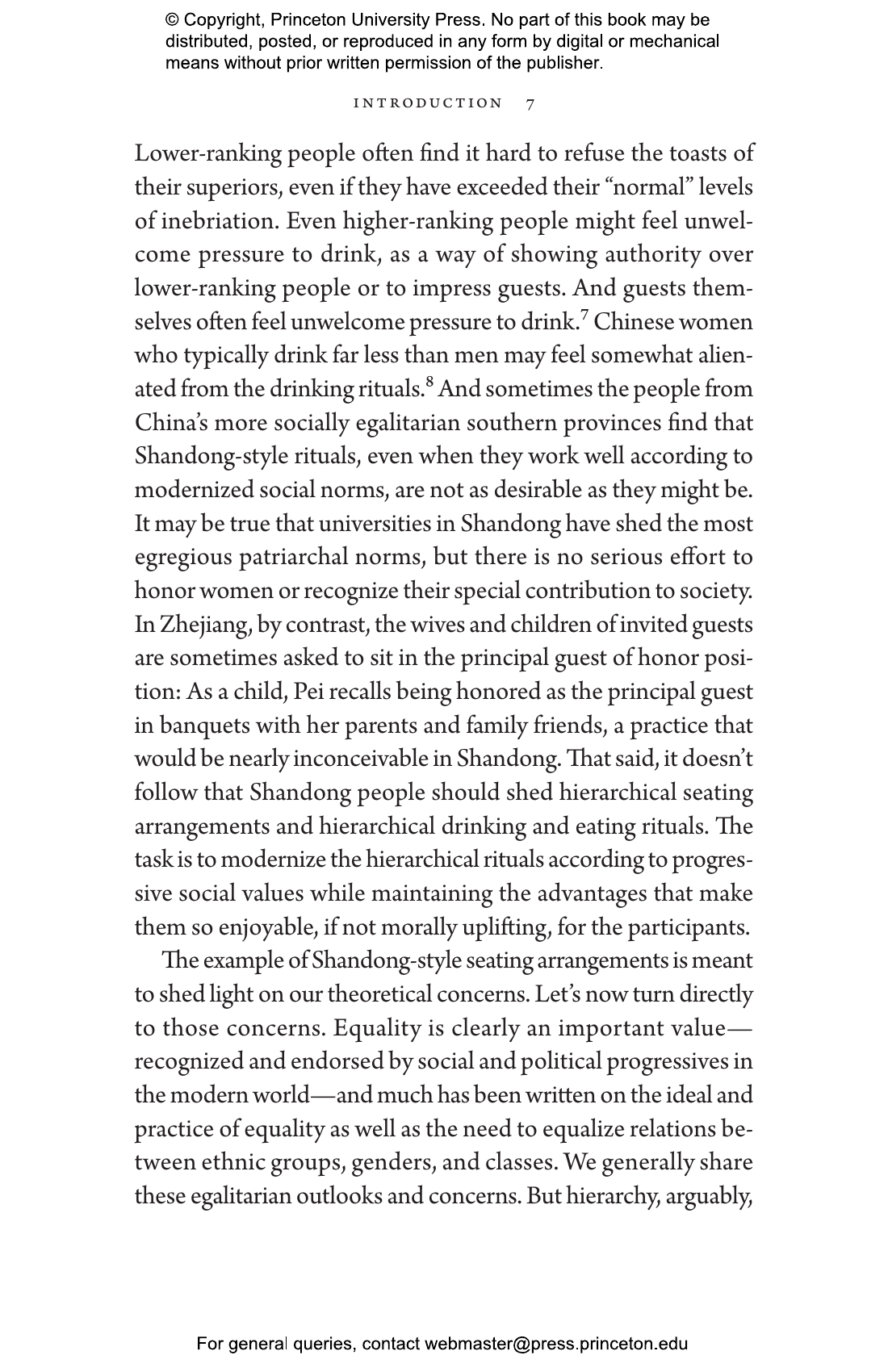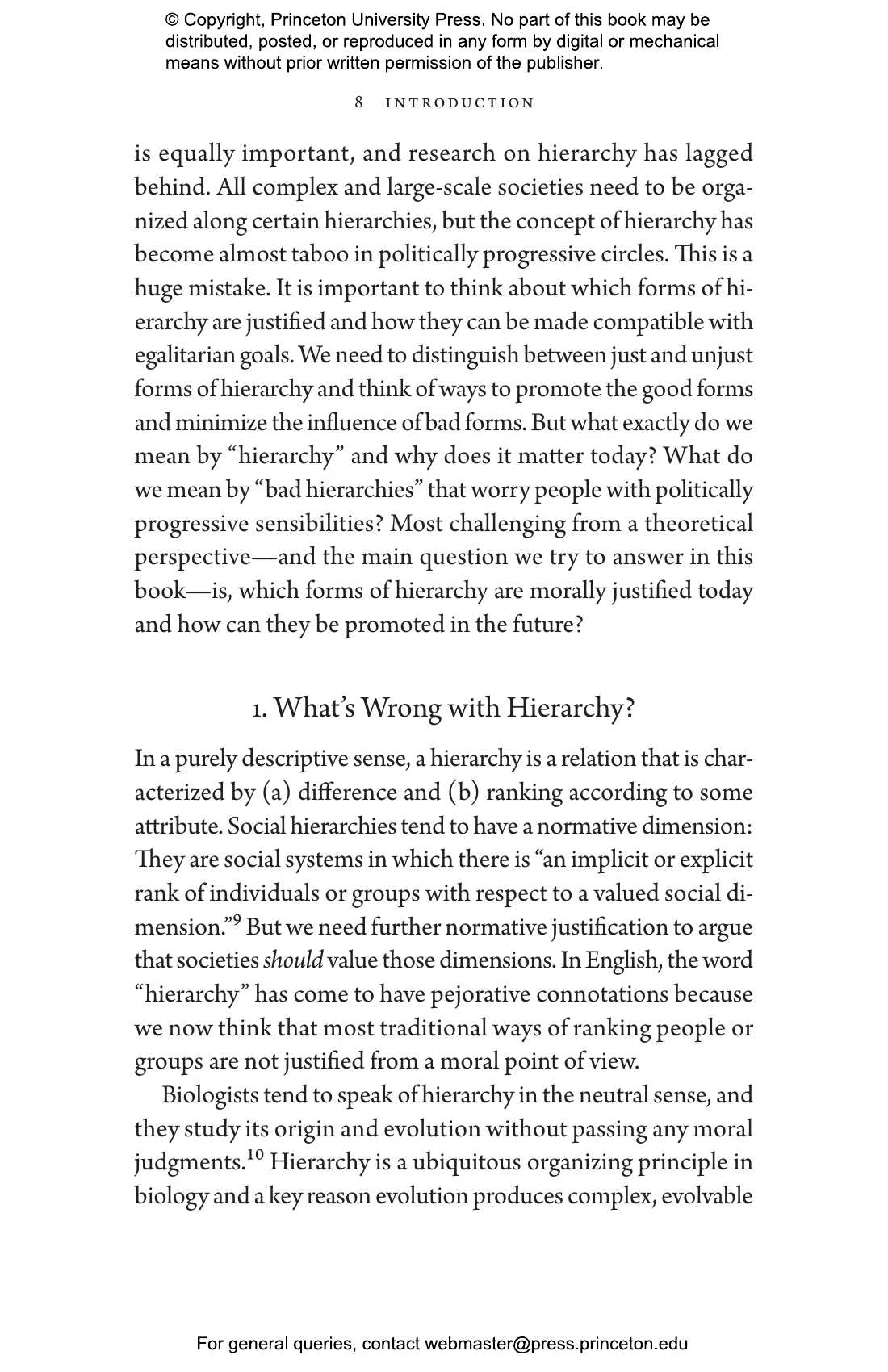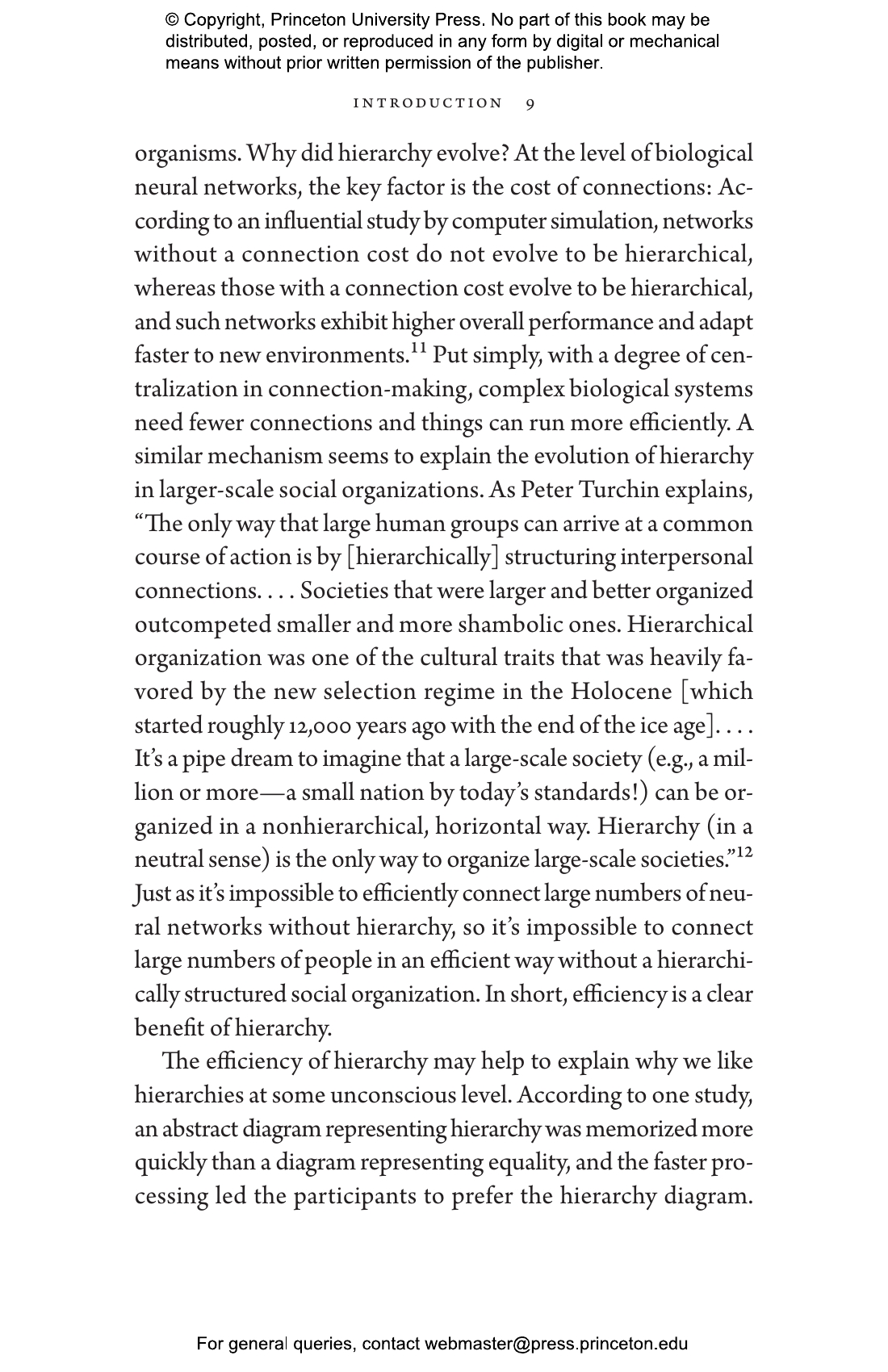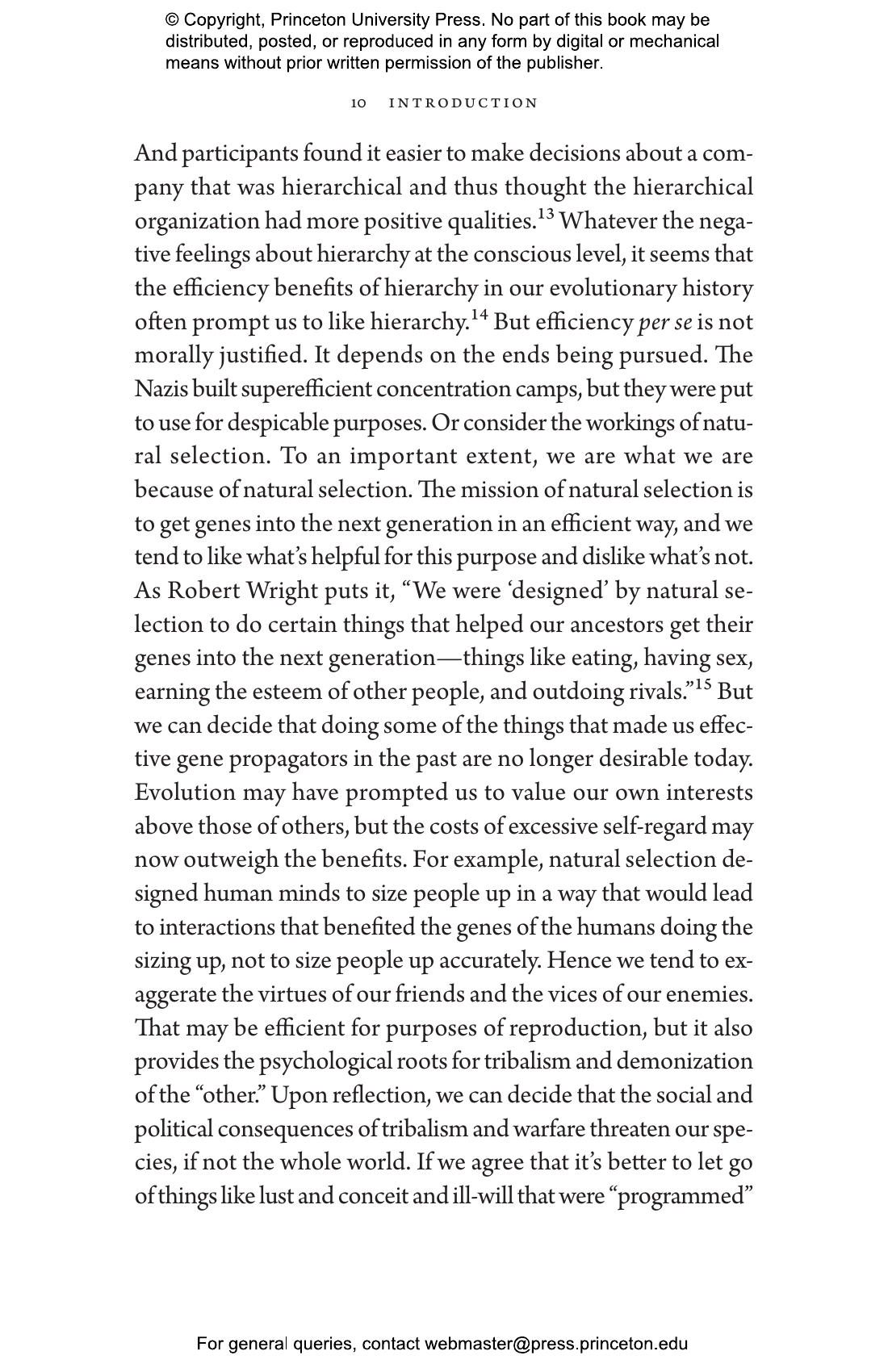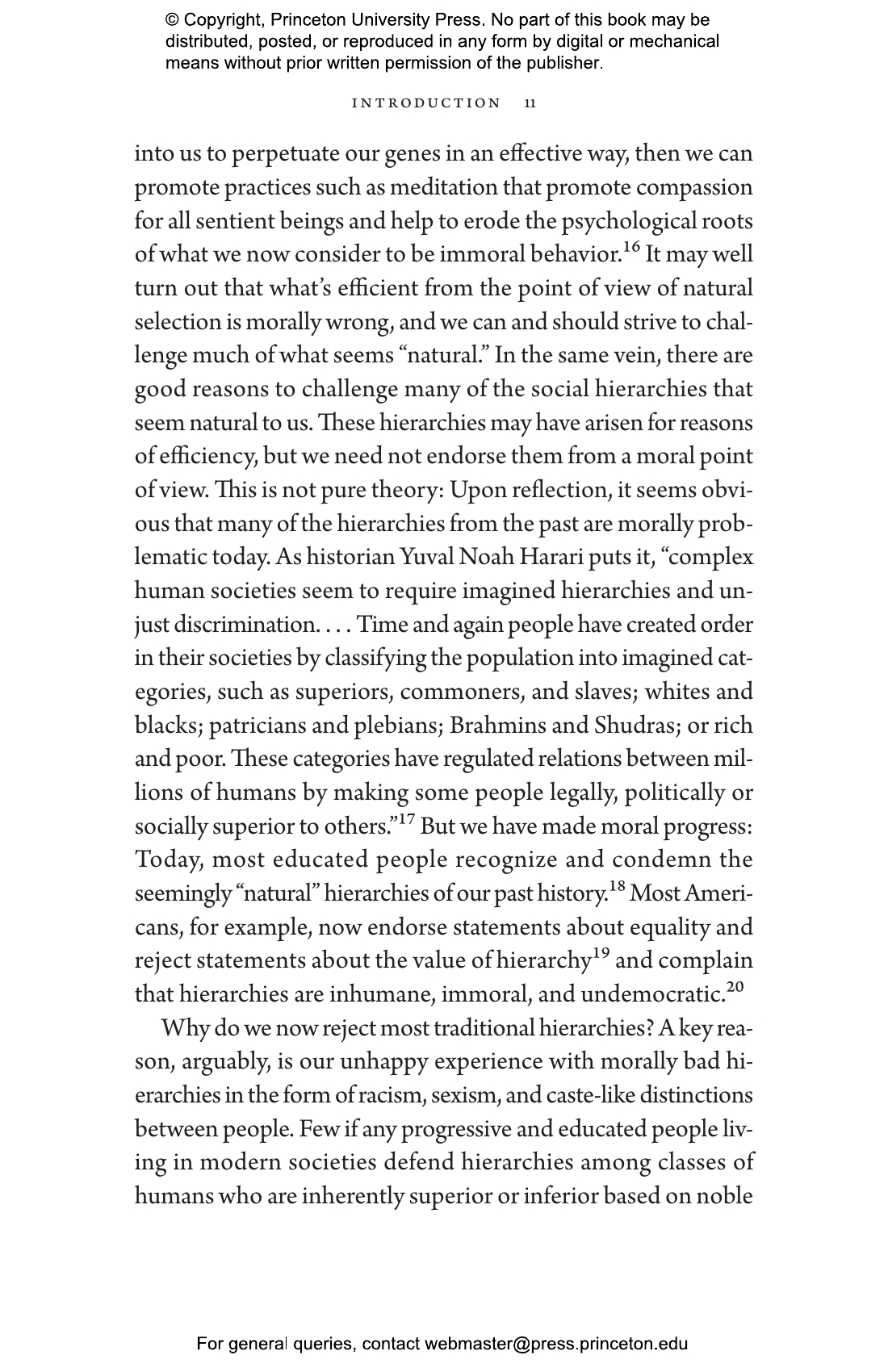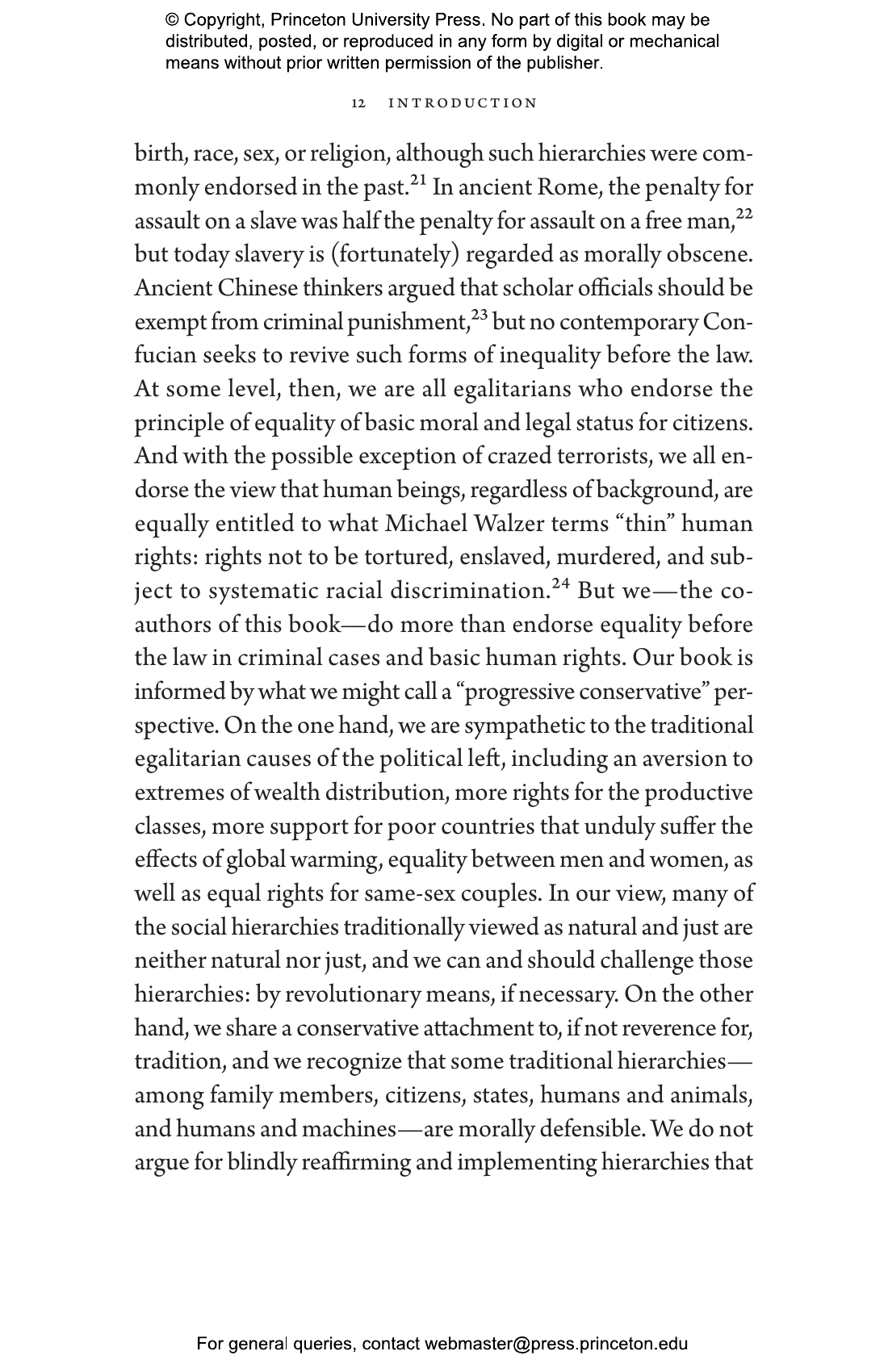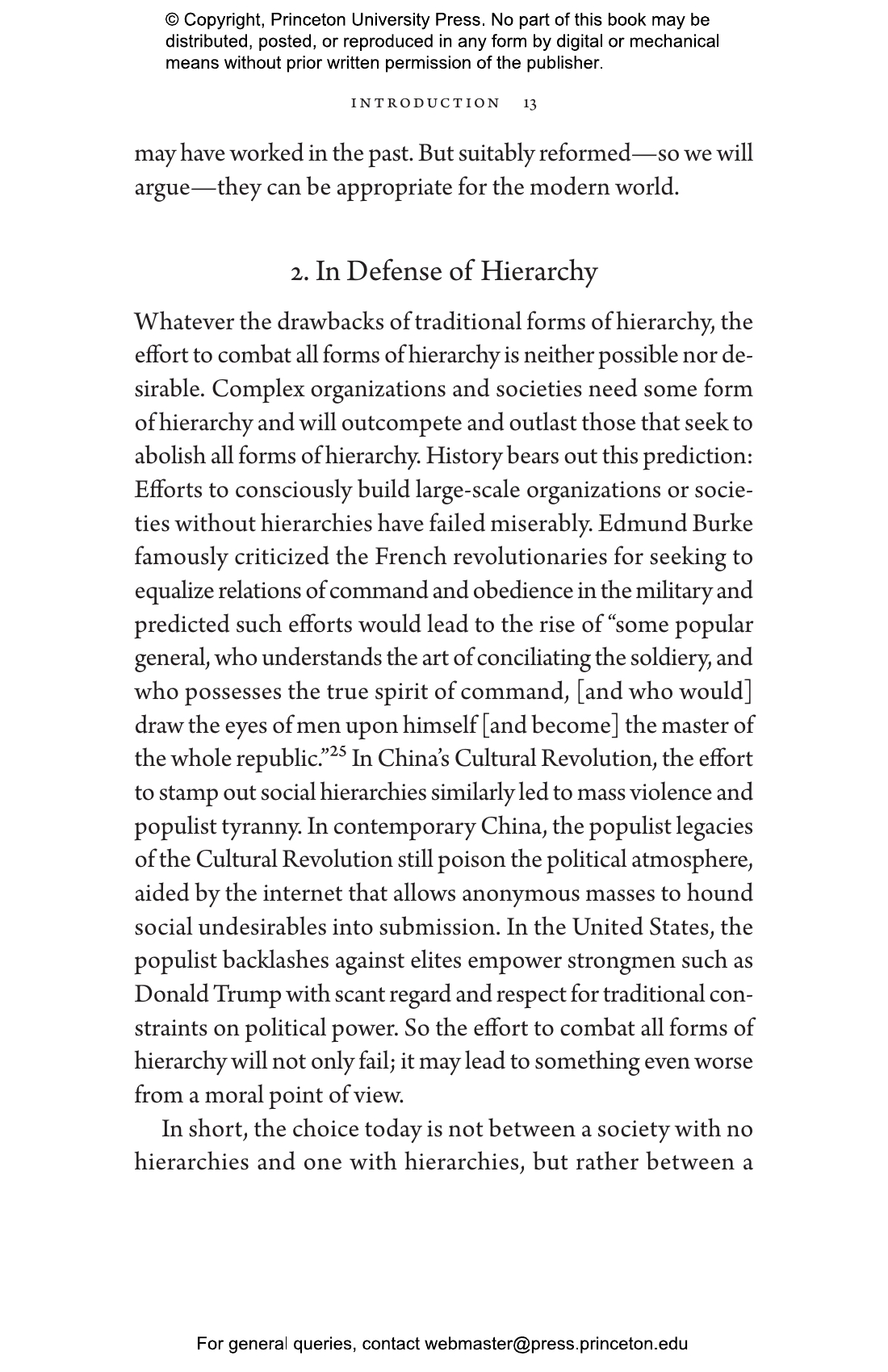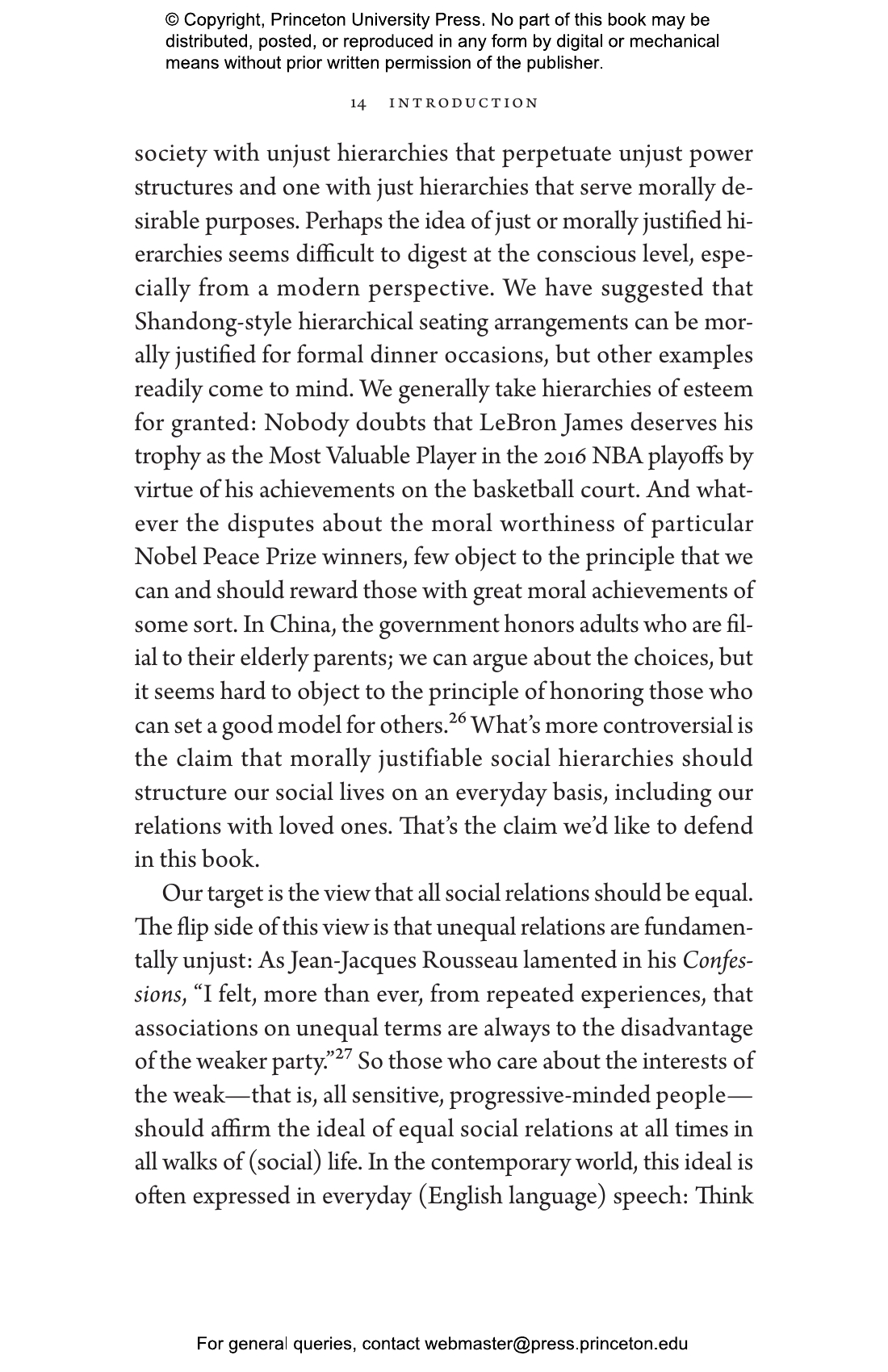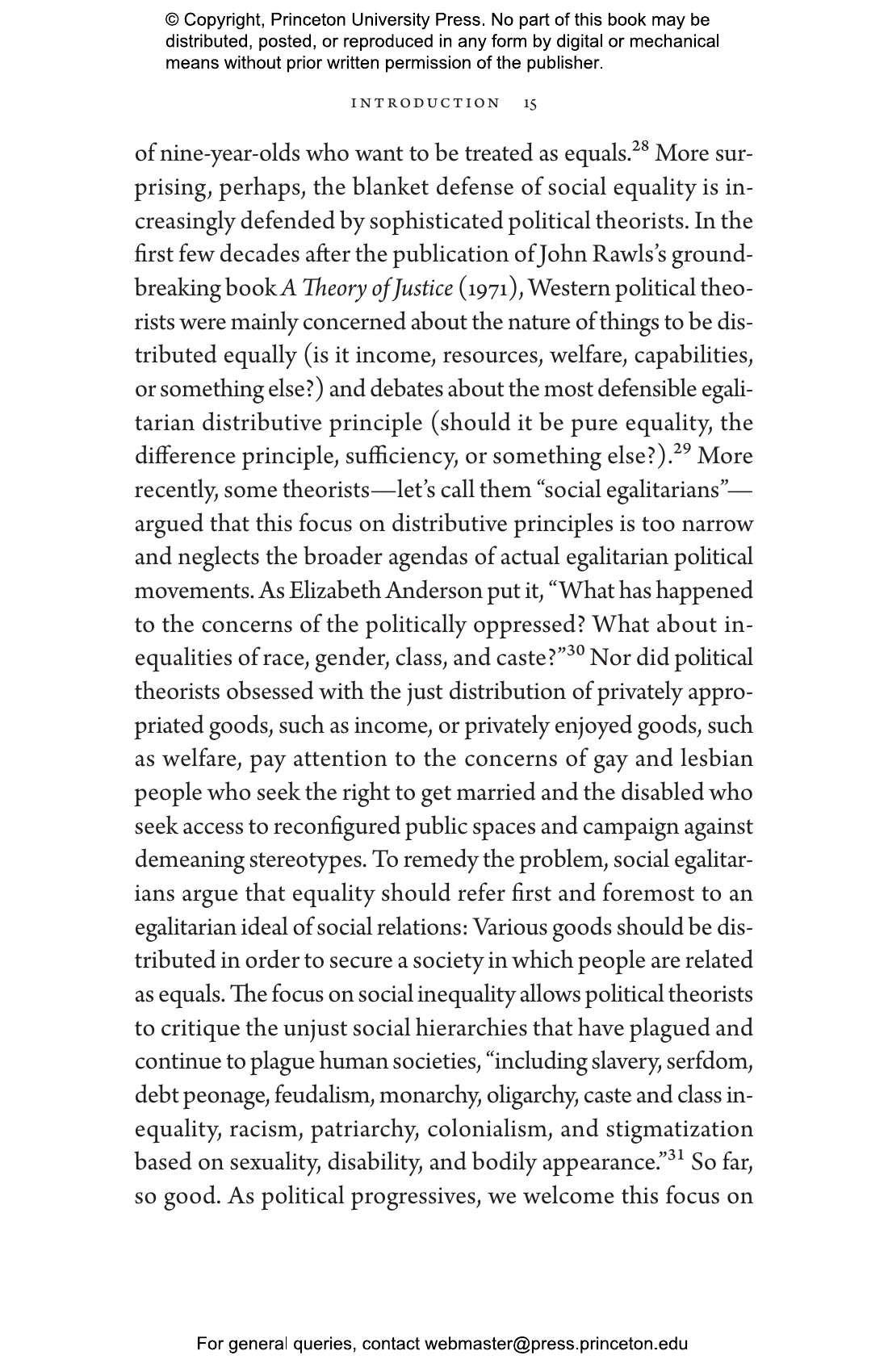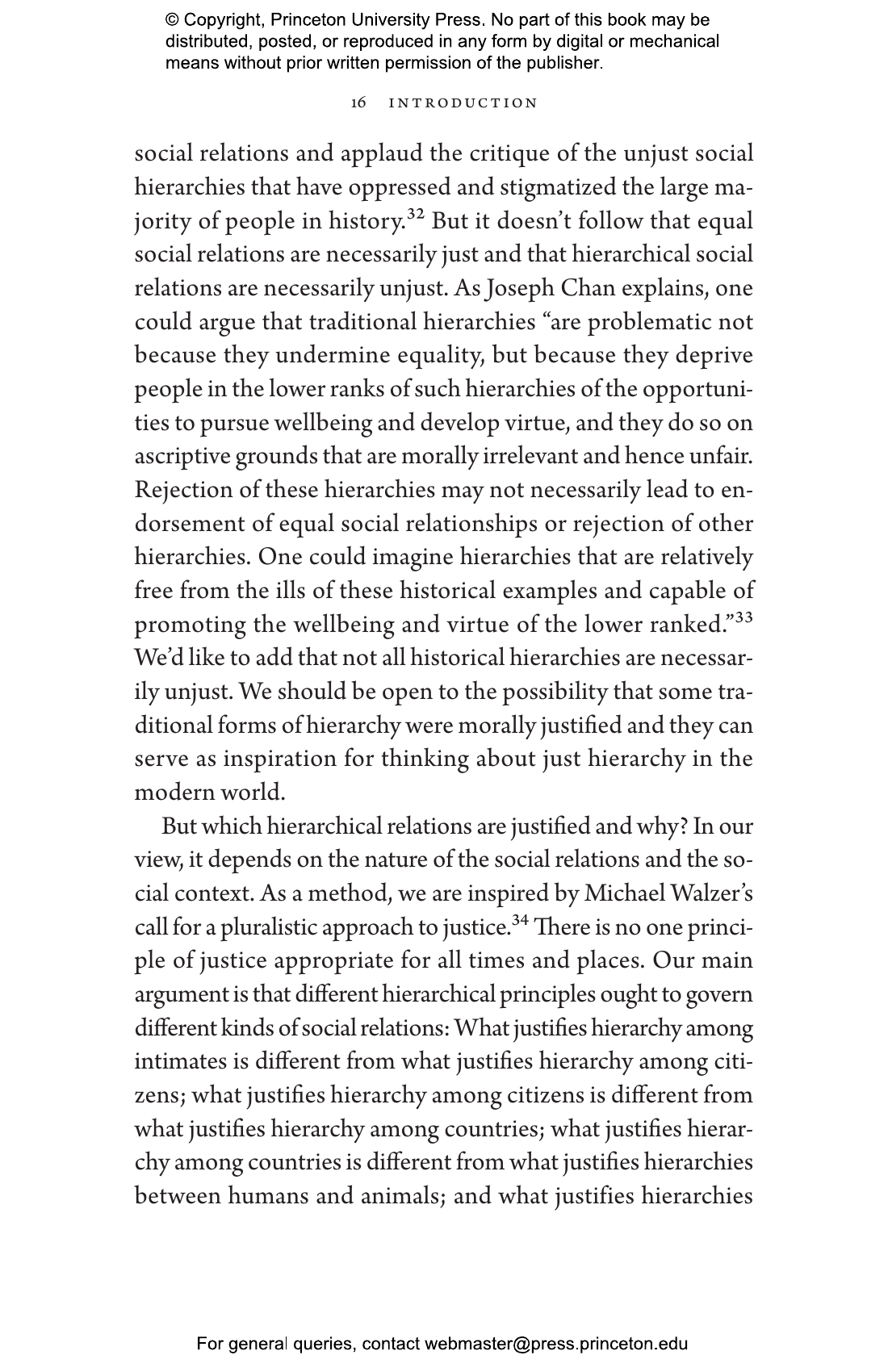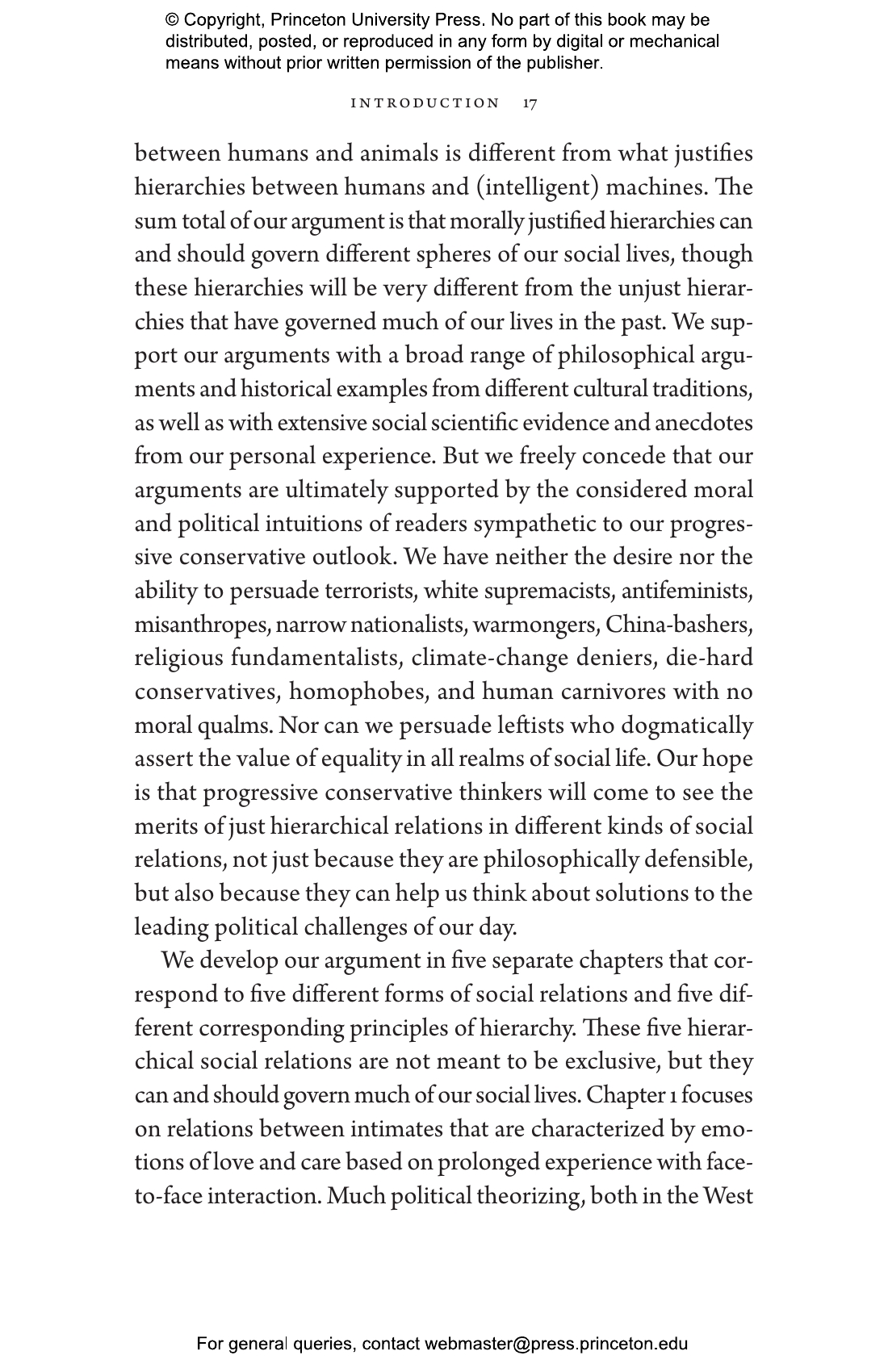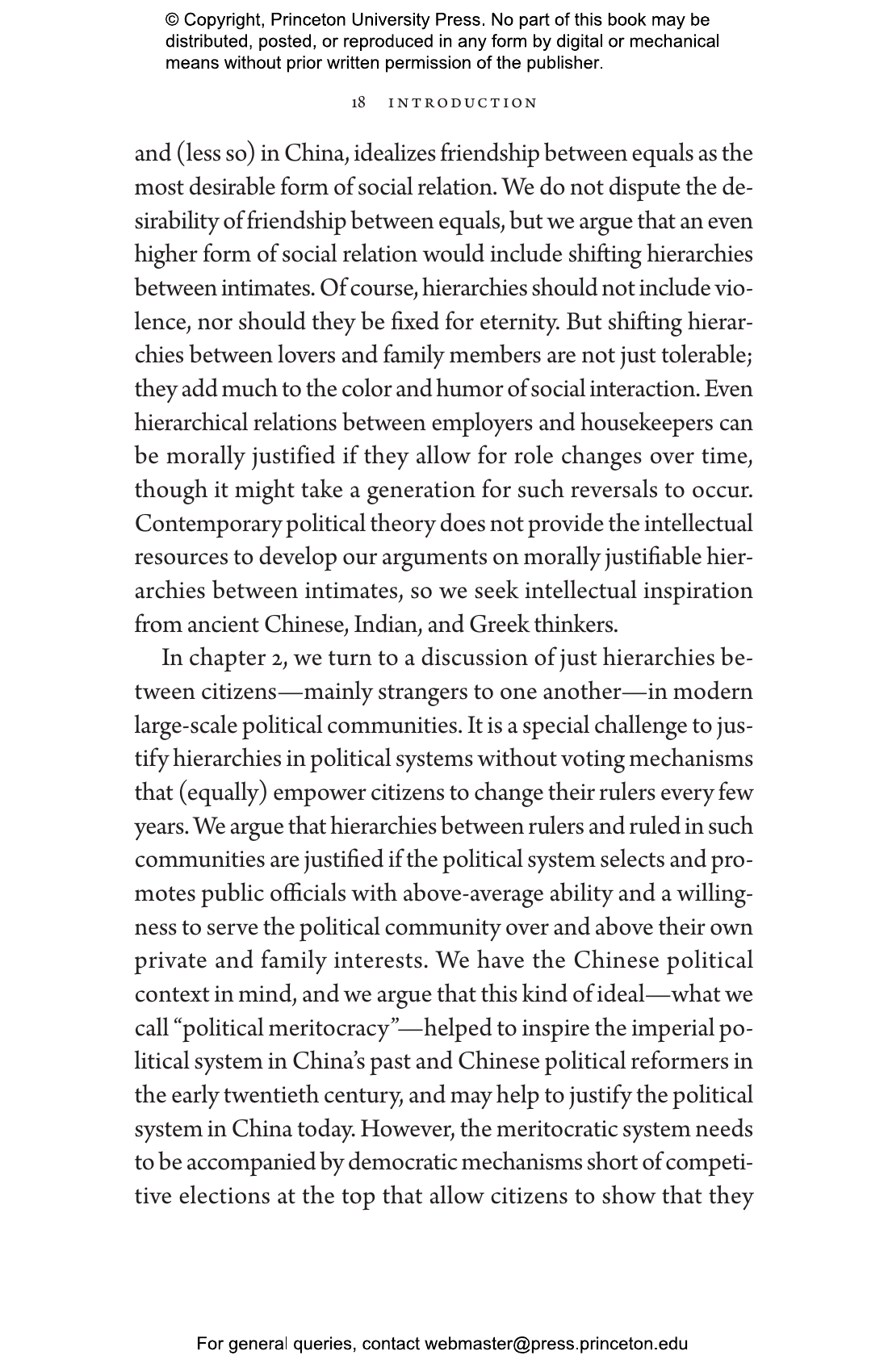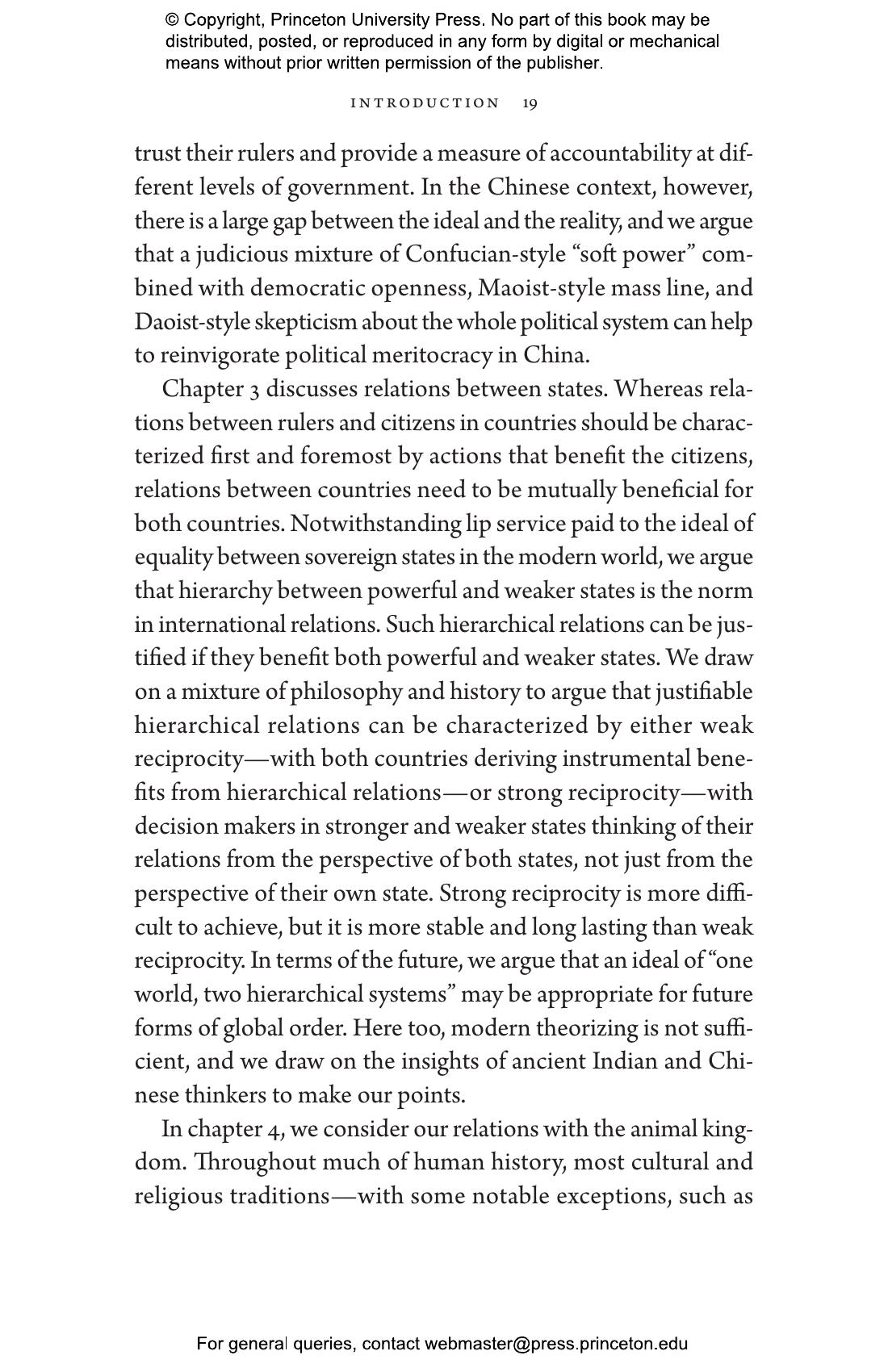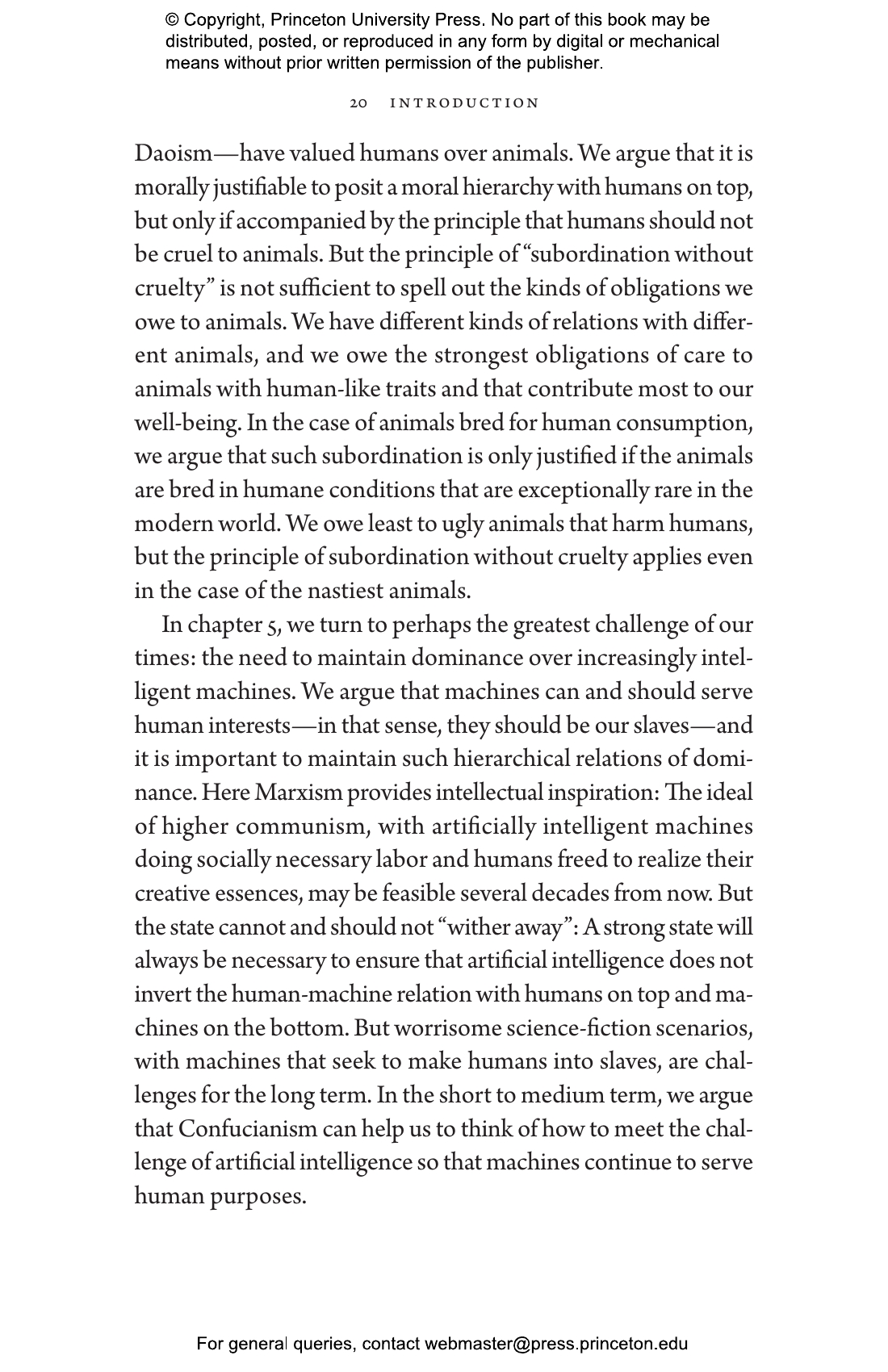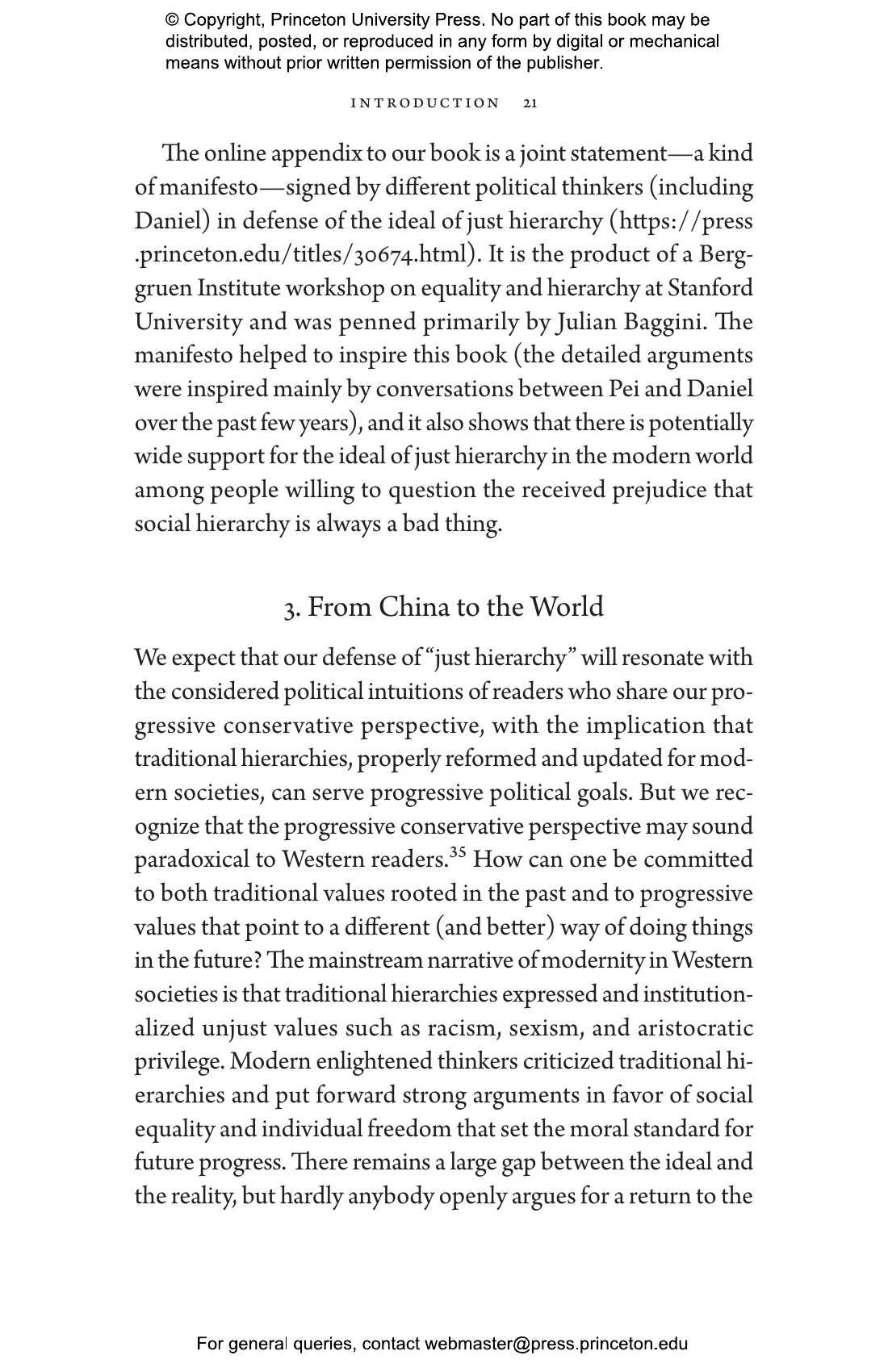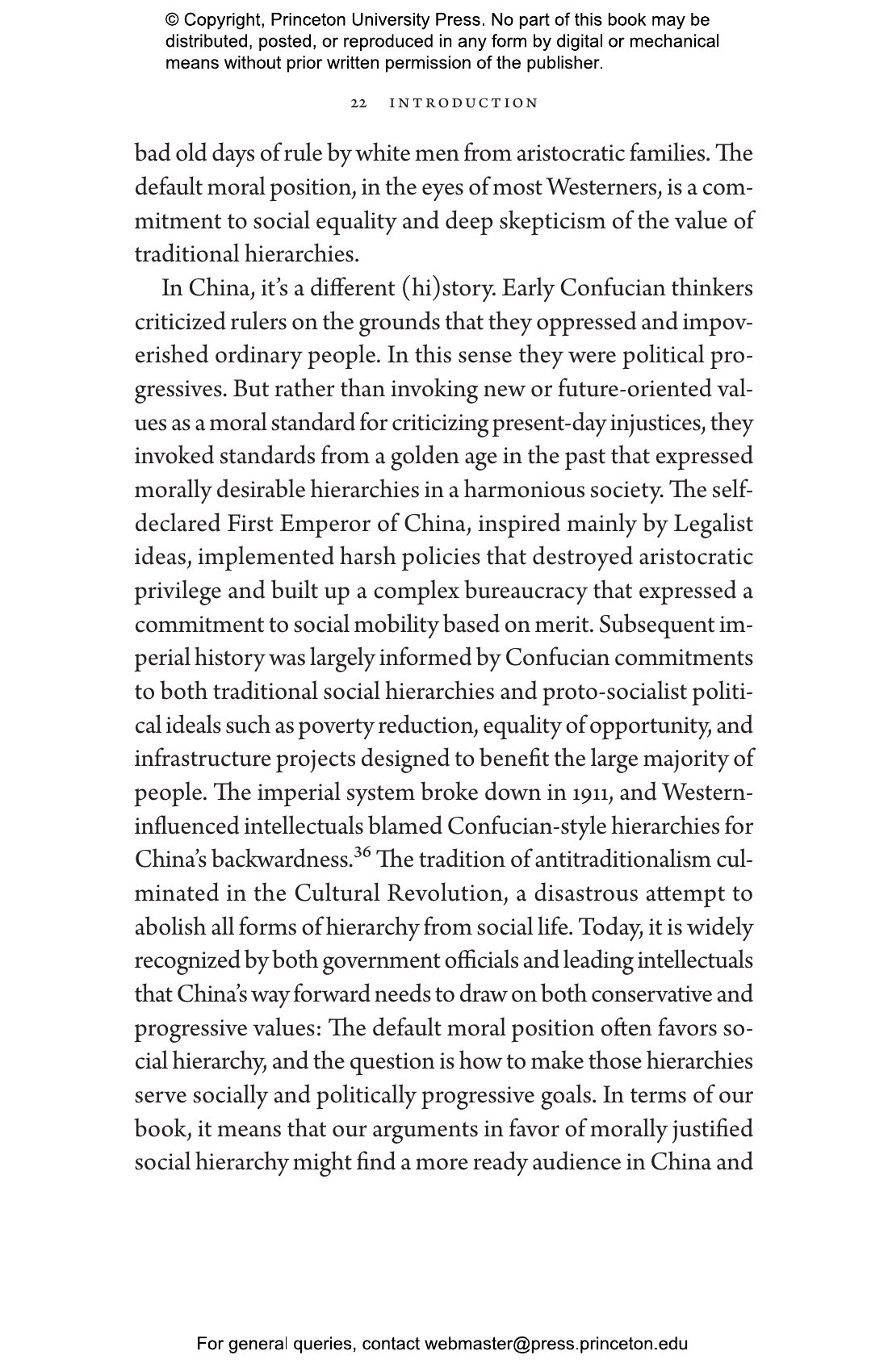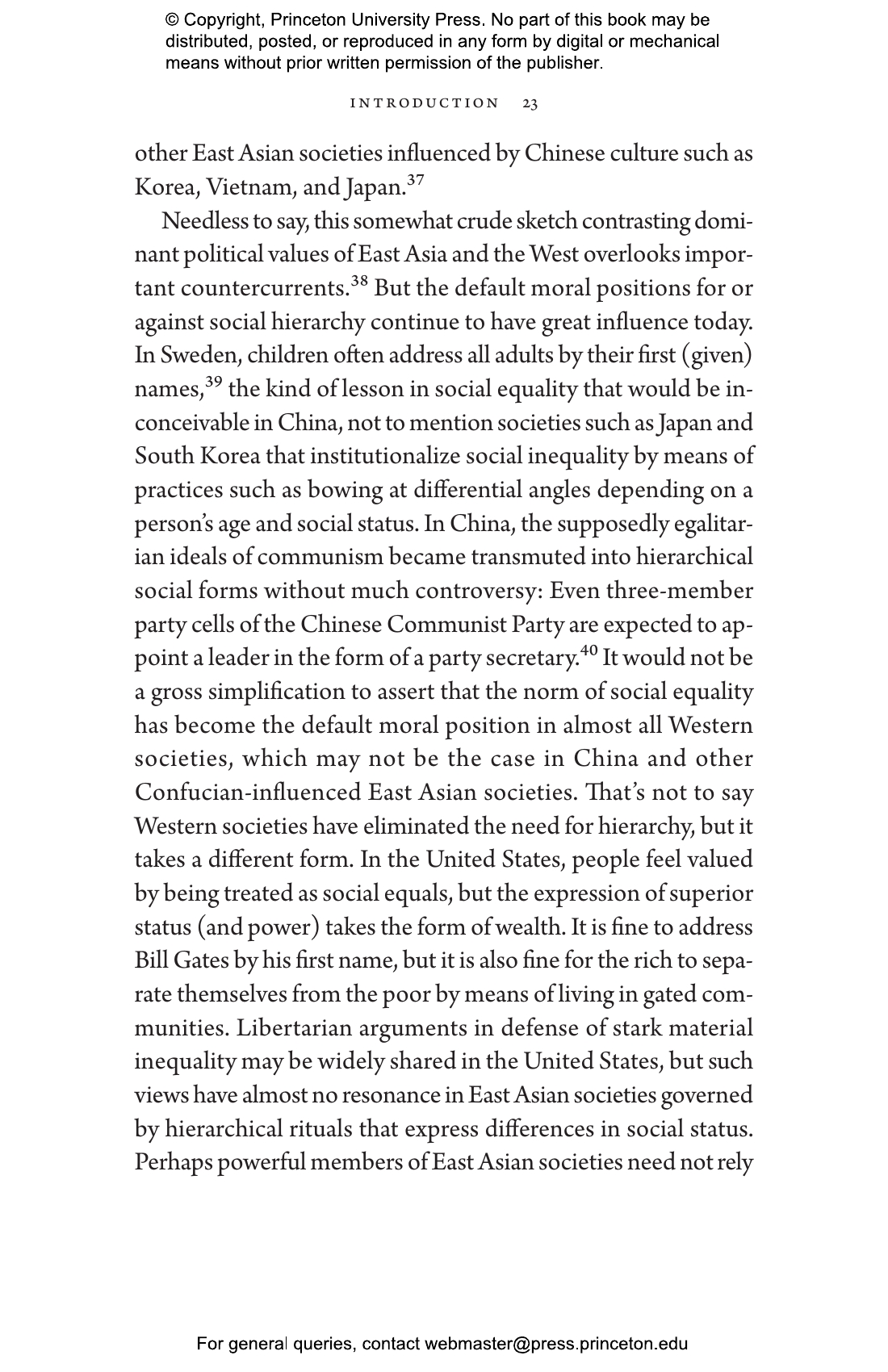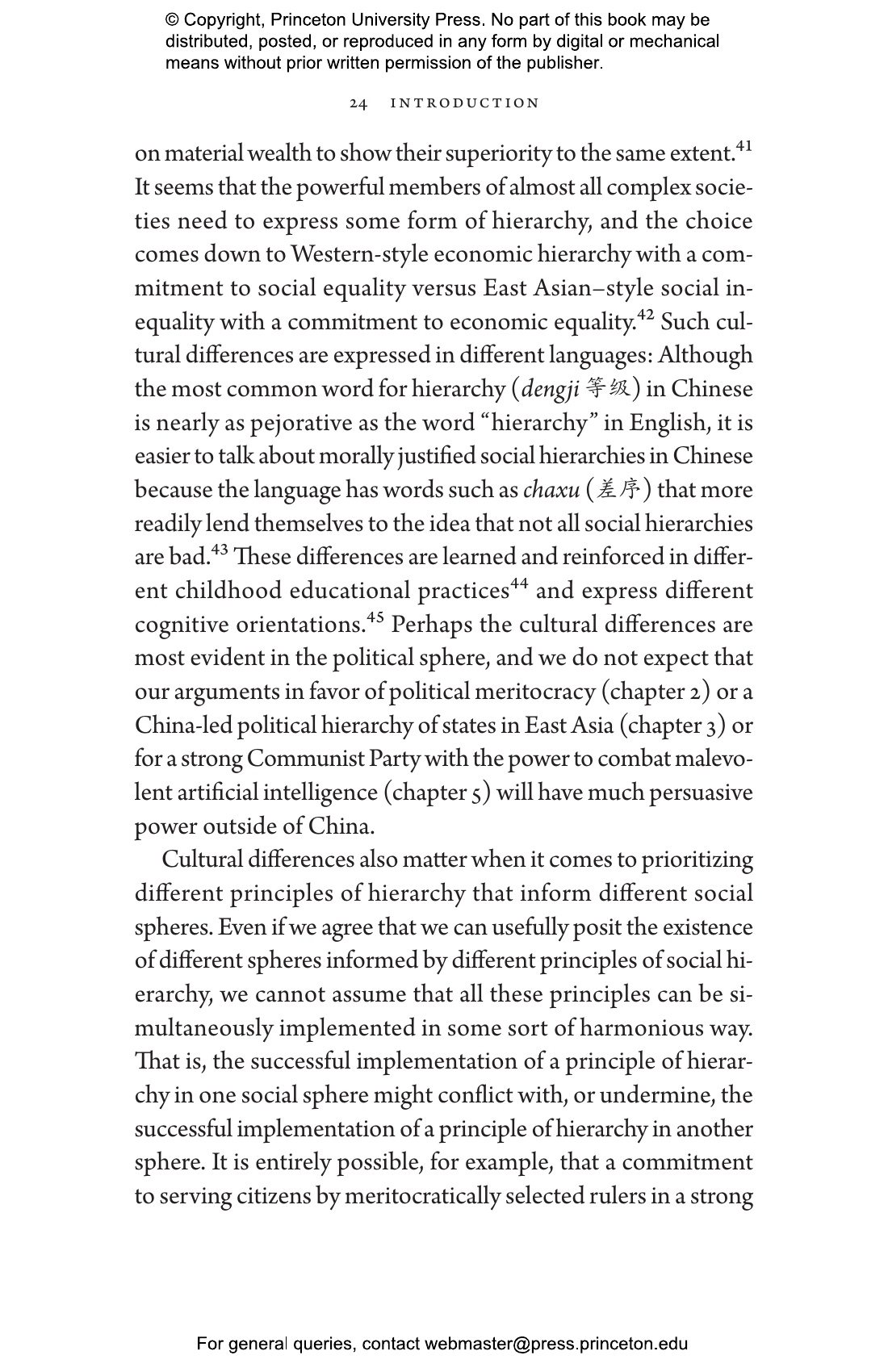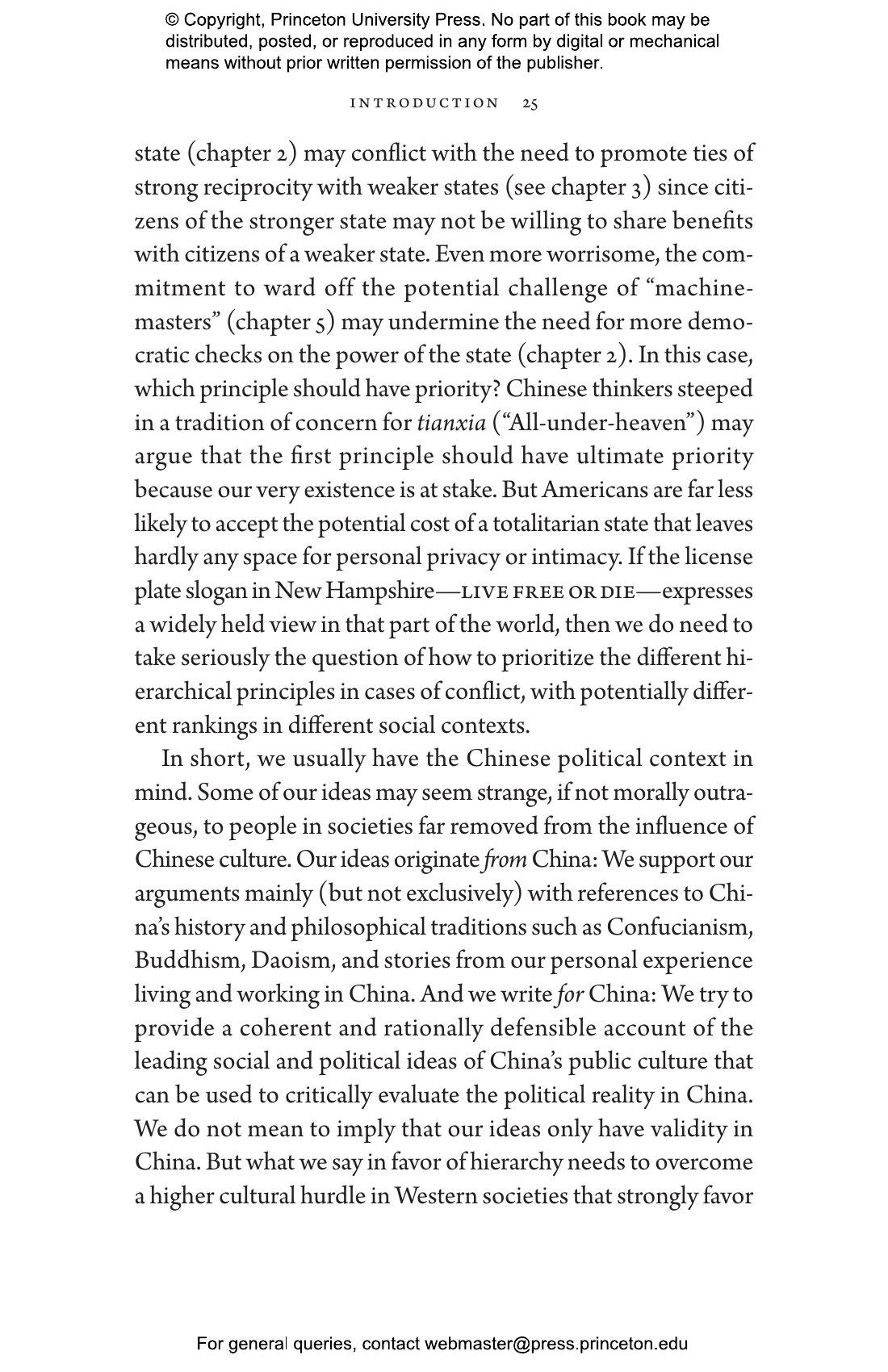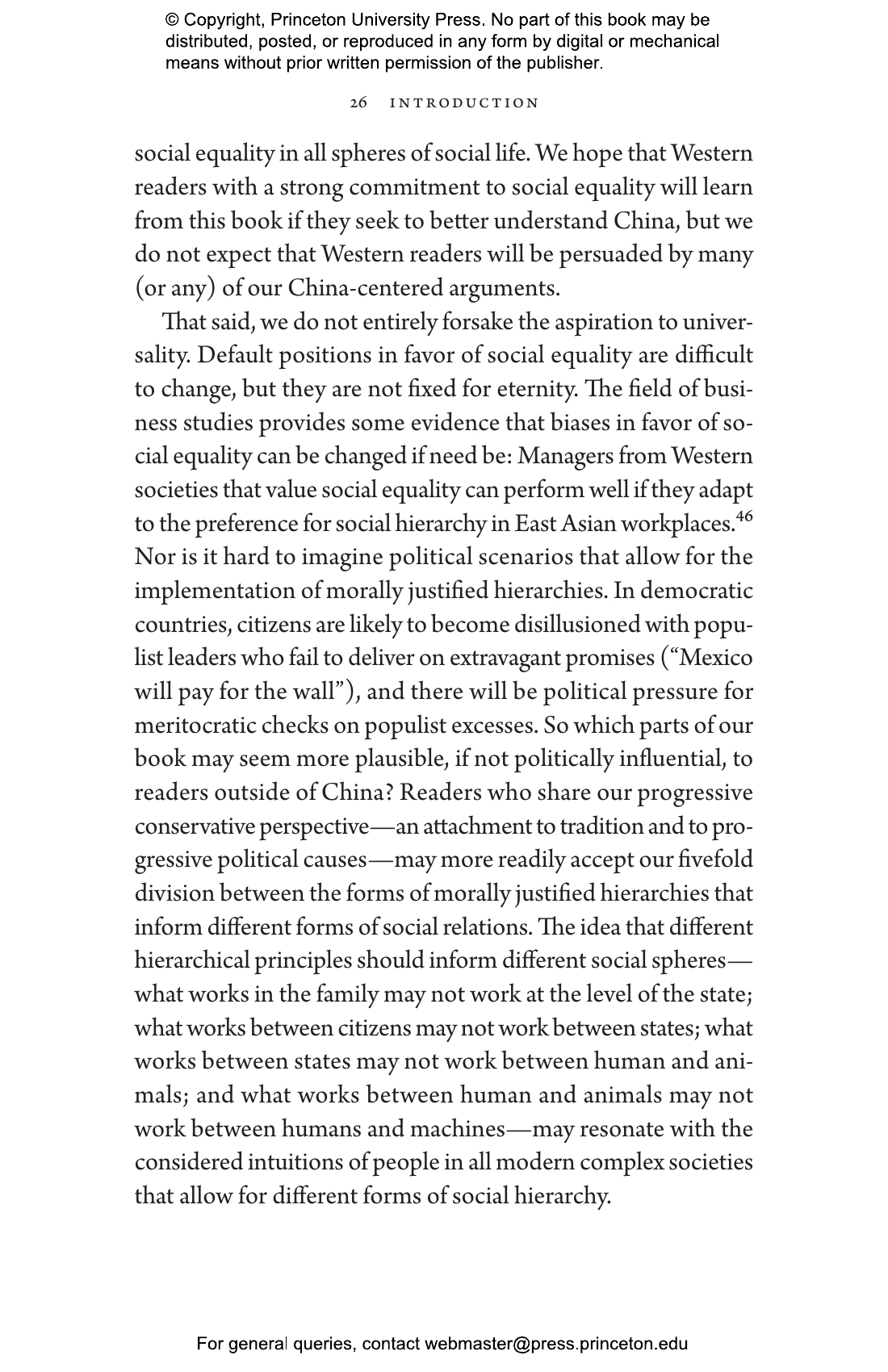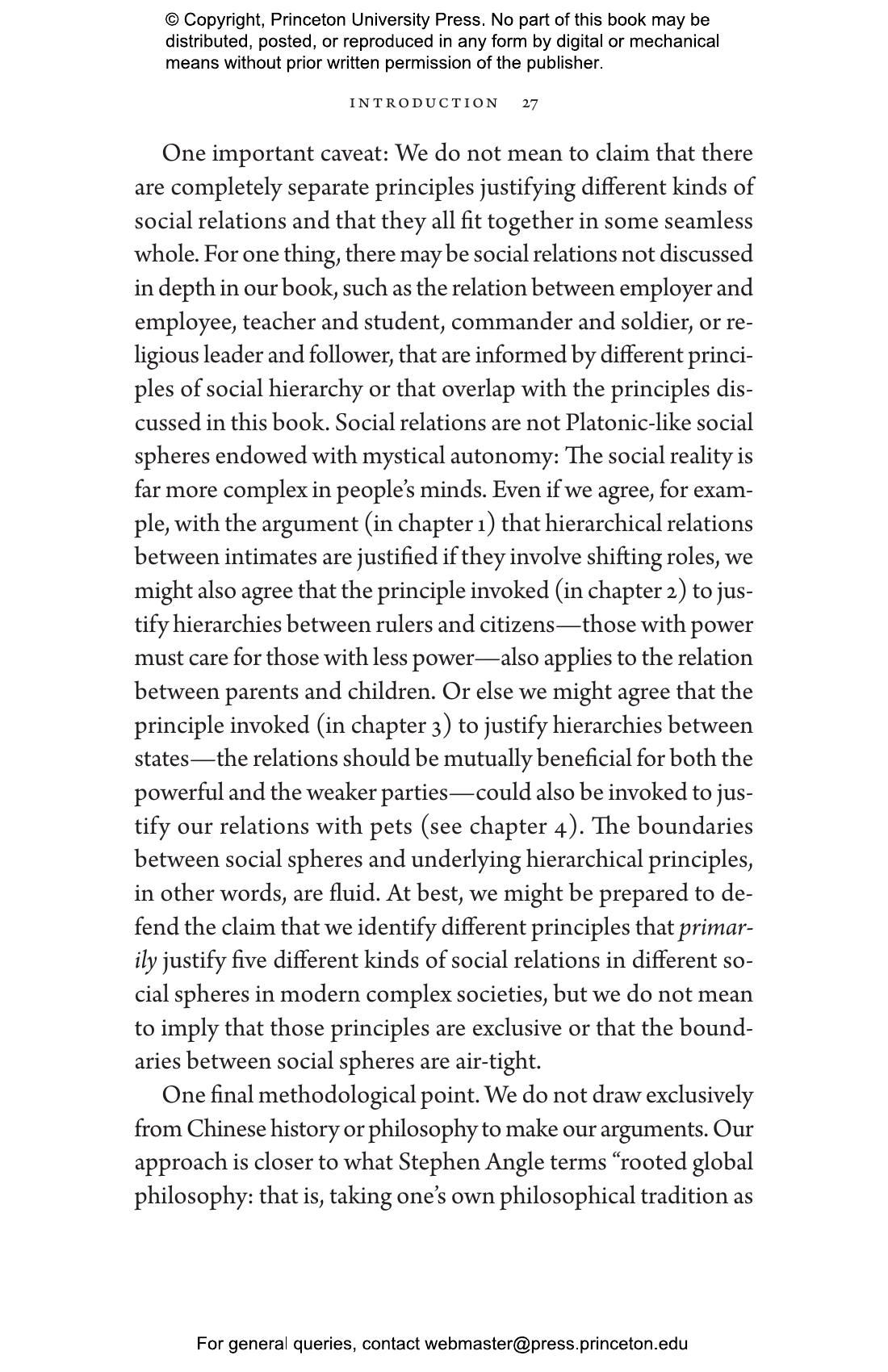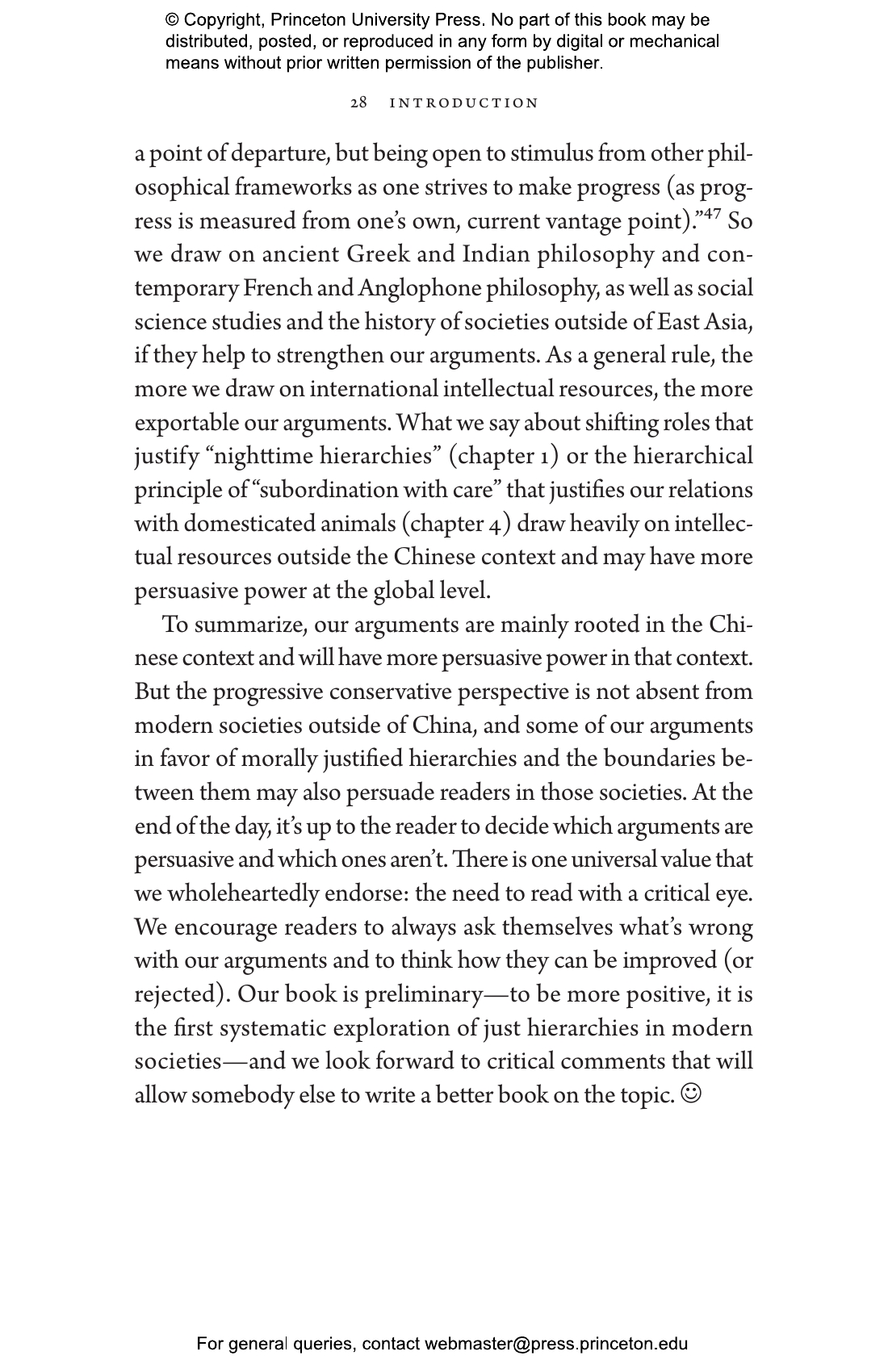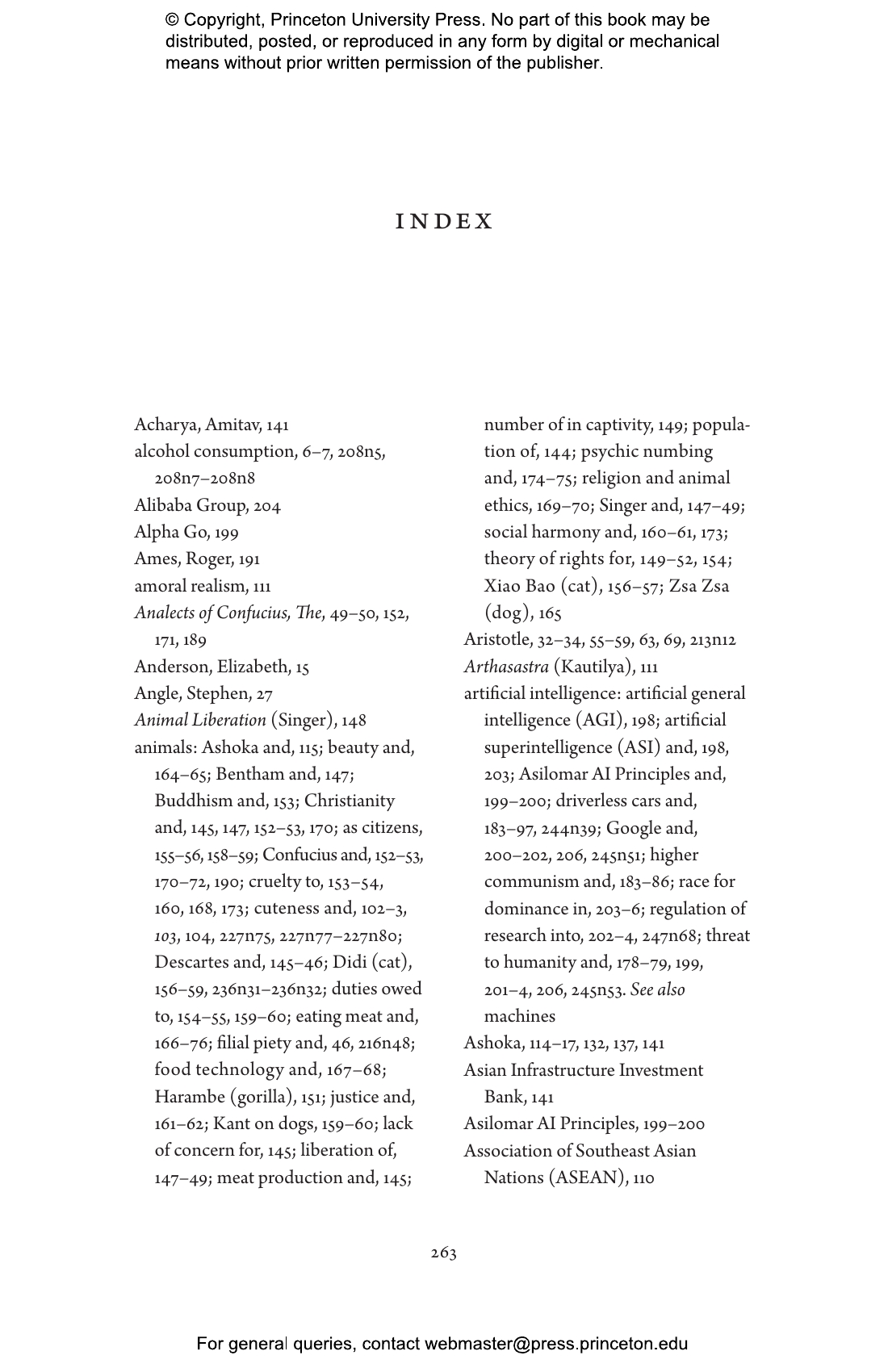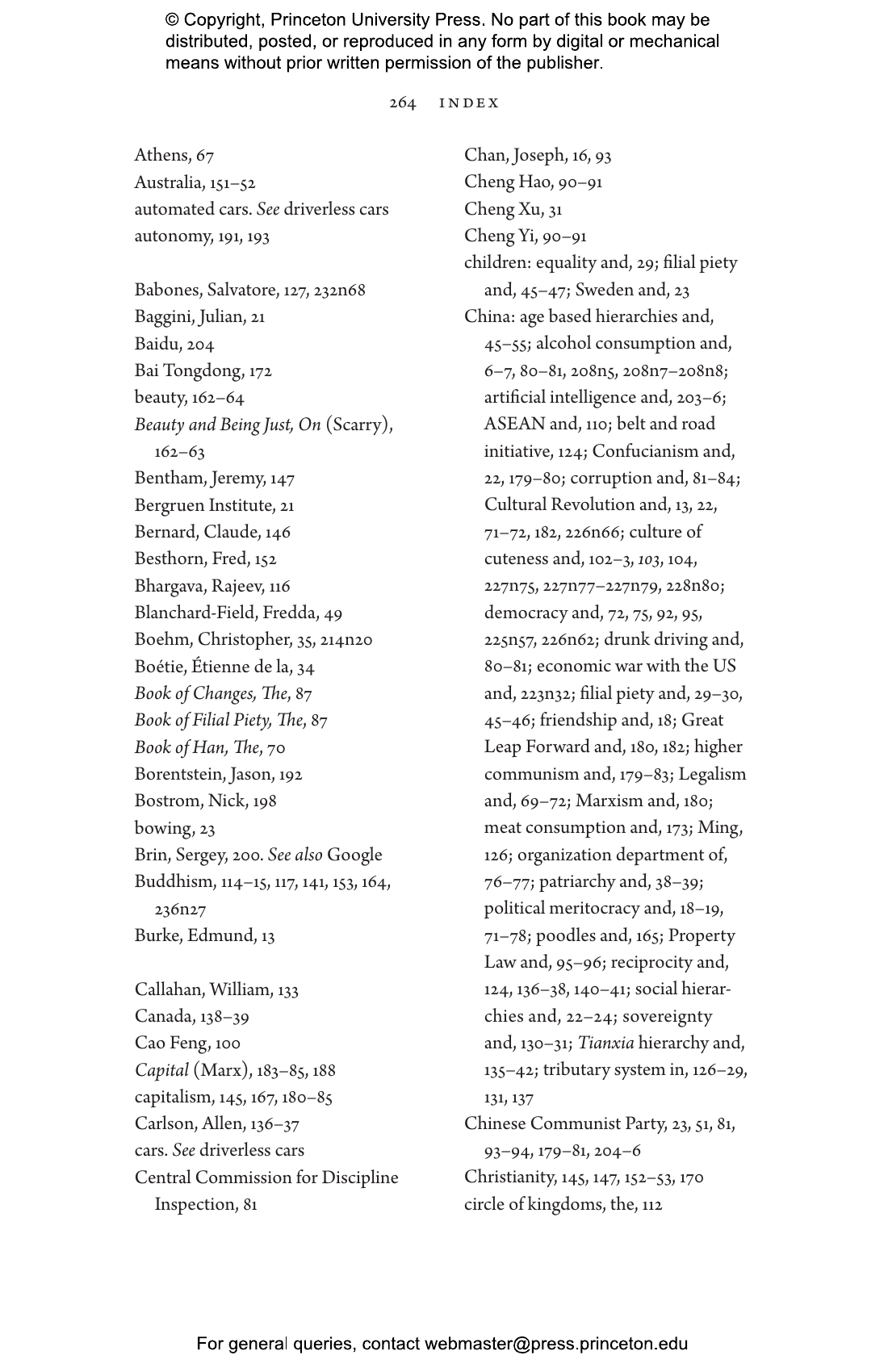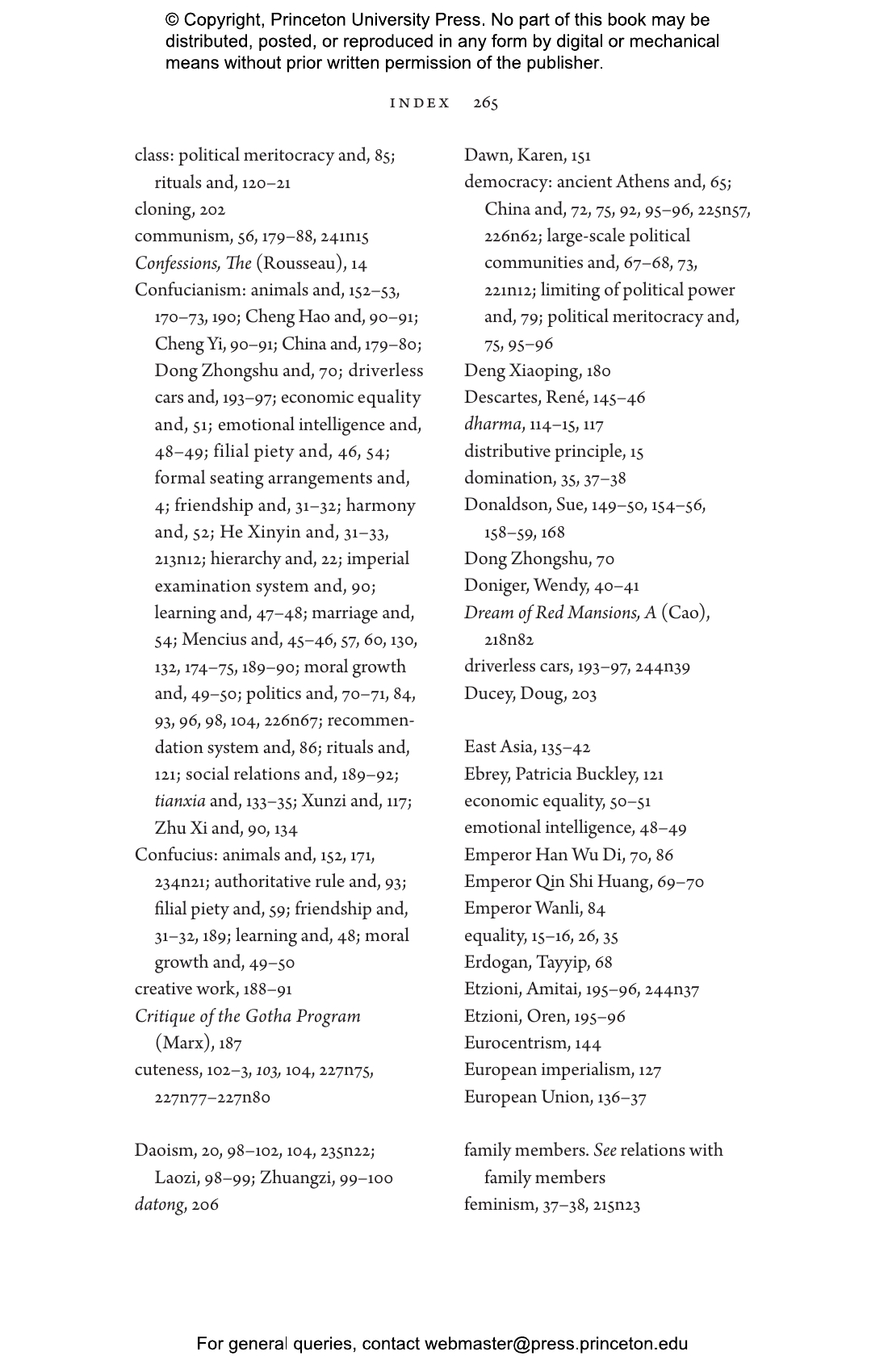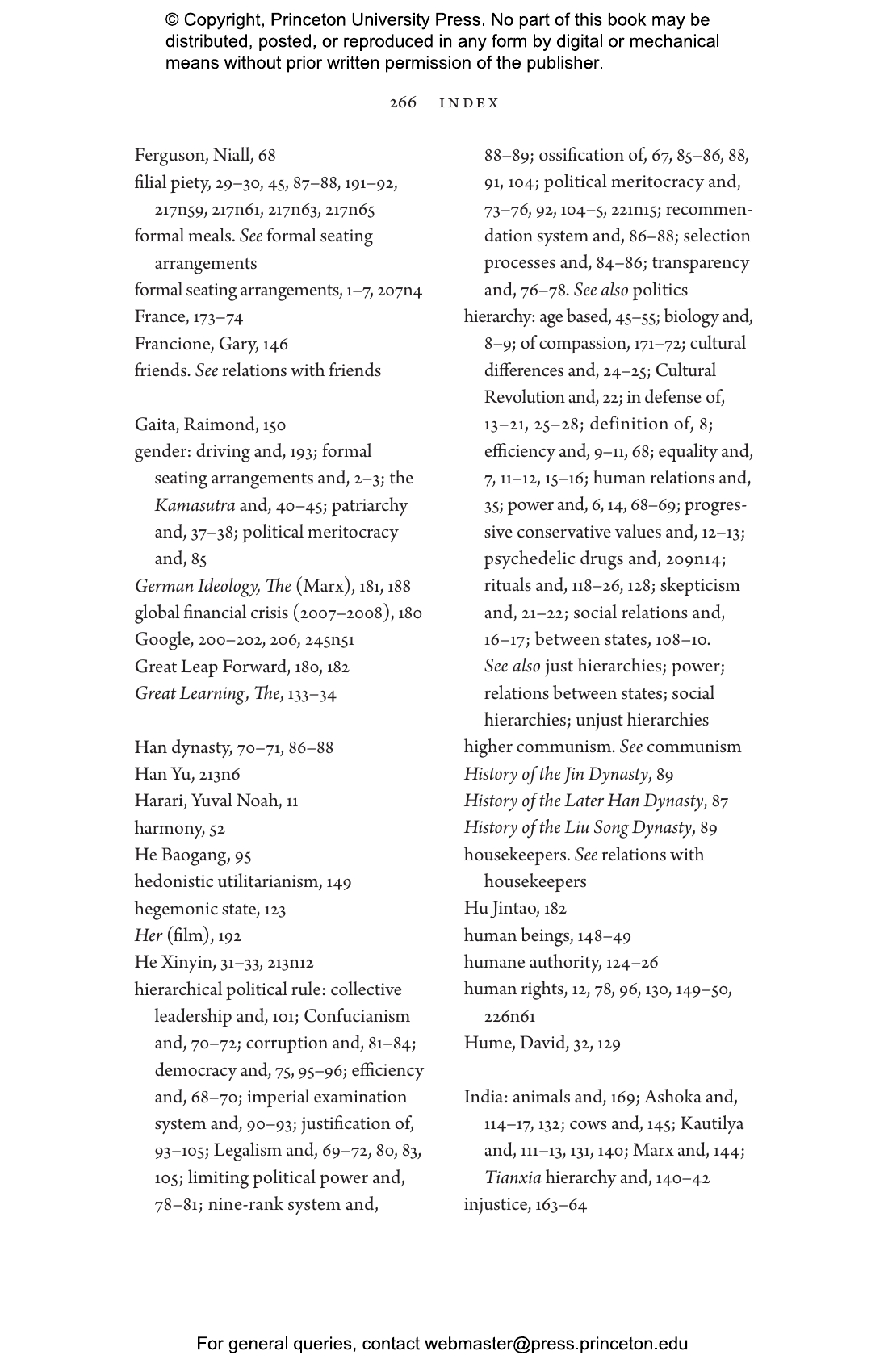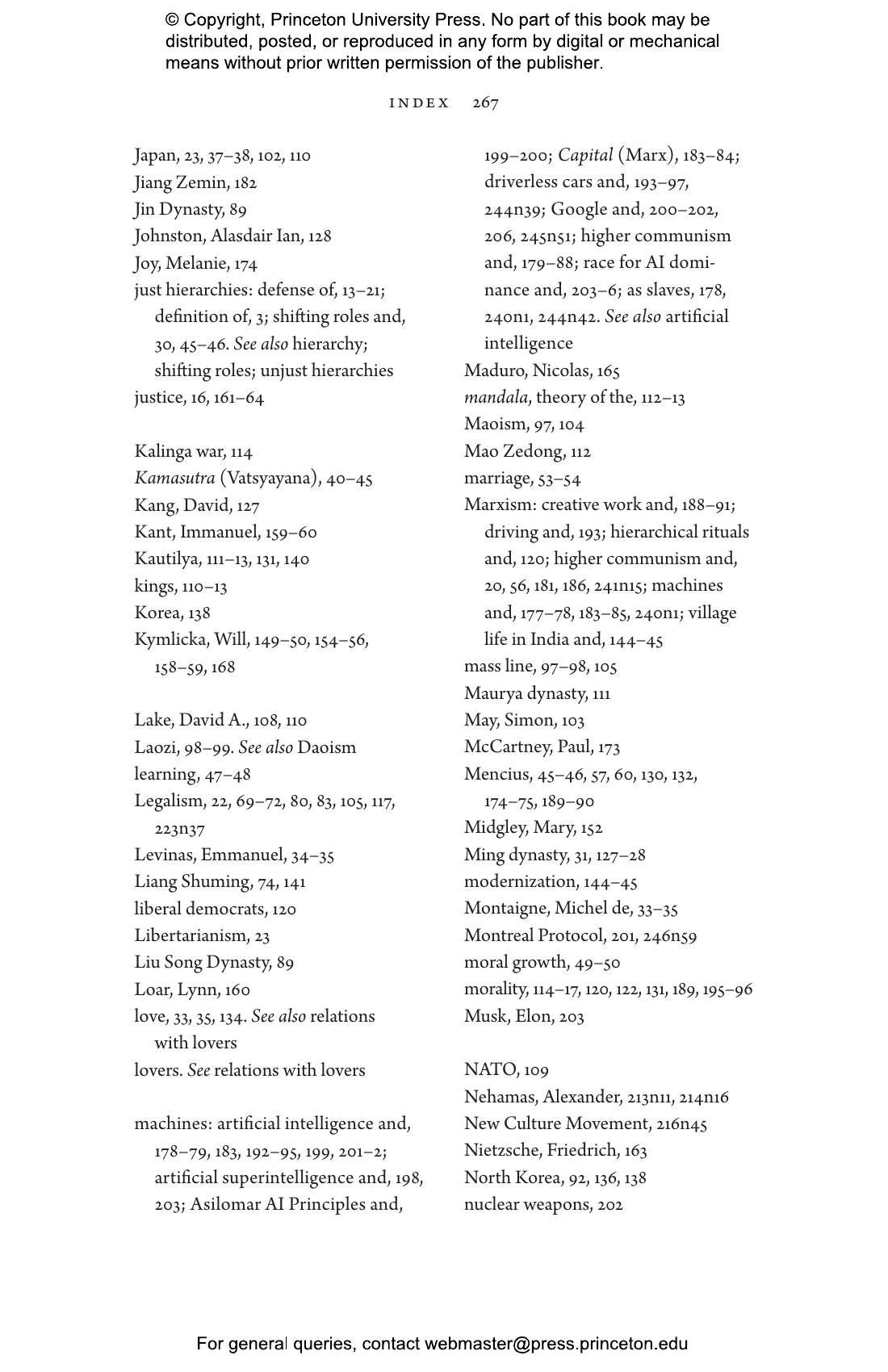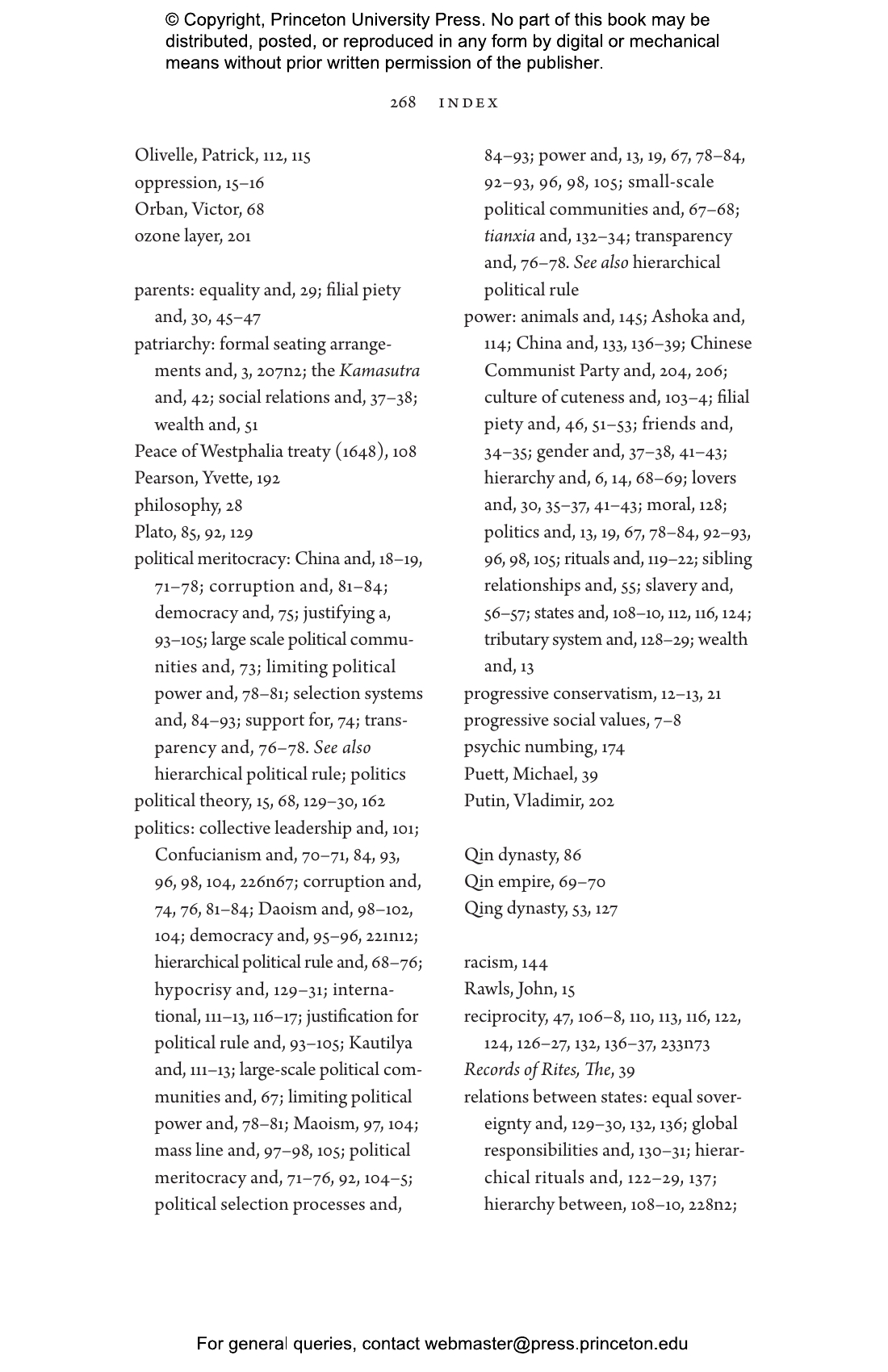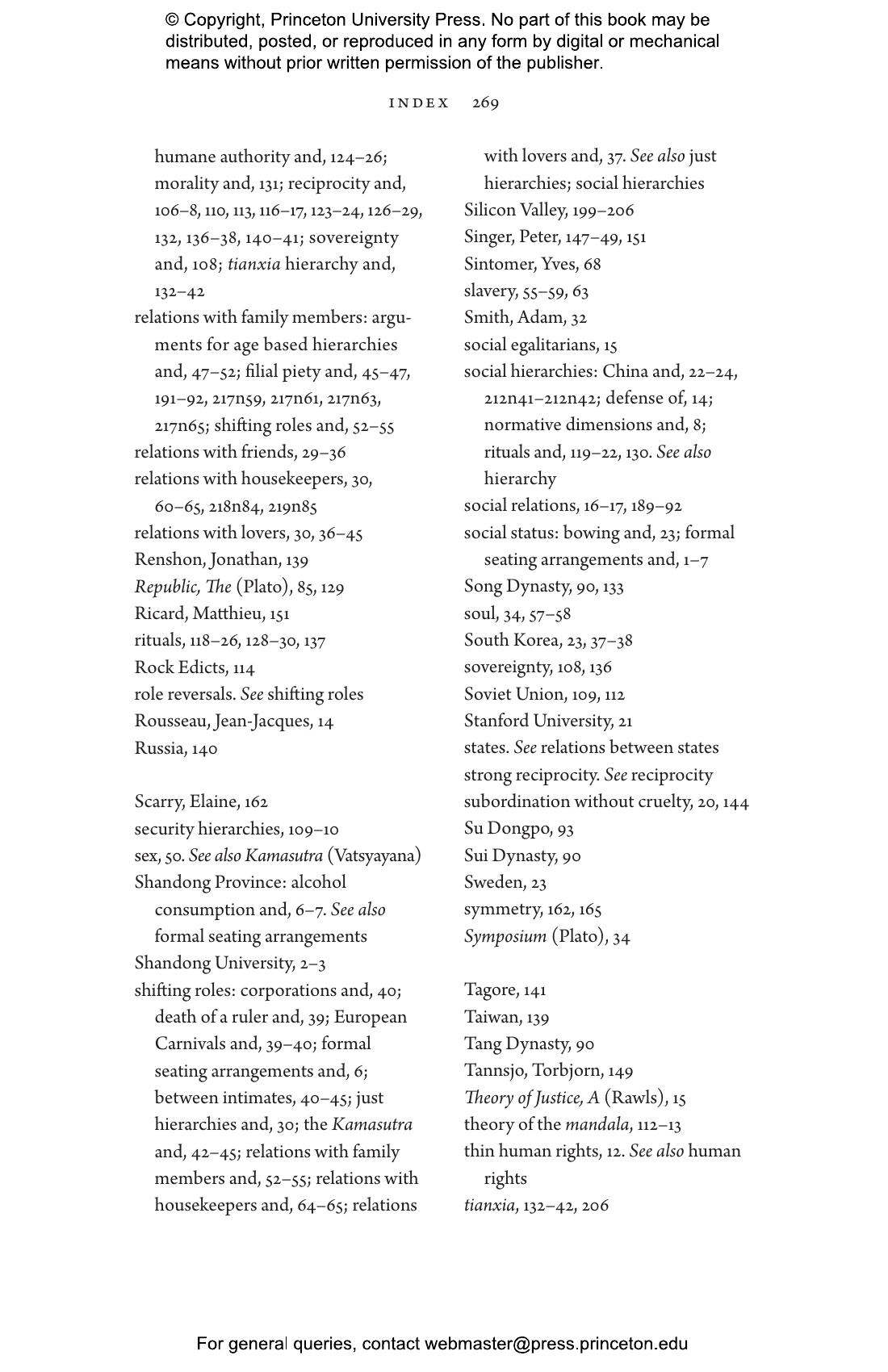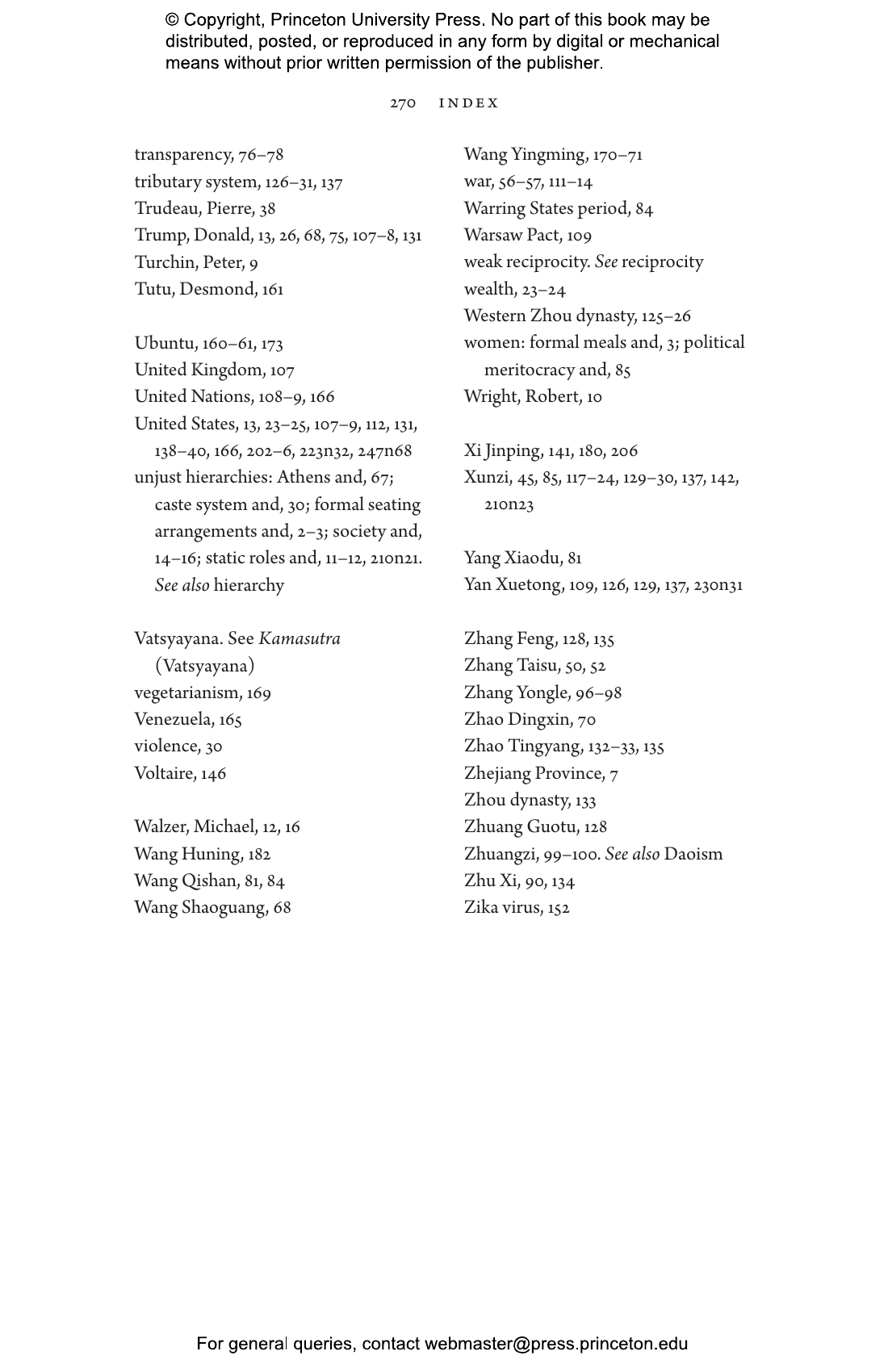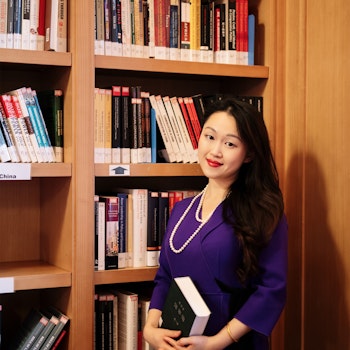All complex and large-scale societies are organized along certain hierarchies, but the concept of hierarchy has become almost taboo in the modern world. Just Hierarchy contends that this stigma is a mistake. In fact, as Daniel Bell and Wang Pei show, it is neither possible nor advisable to do away with social hierarchies. Drawing their arguments from Chinese thought and culture as well as other philosophies and traditions, Bell and Wang ask which forms of hierarchy are justified and how these can serve morally desirable goals. They look at ways of promoting just forms of hierarchy while minimizing the influence of unjust ones, such as those based on race, sex, or caste.
Which hierarchical relations are morally justified and why? Bell and Wang argue that it depends on the nature of the social relation and context. Different hierarchical principles ought to govern different kinds of social relations: what justifies hierarchy among intimates is different from what justifies hierarchy among citizens, countries, humans and animals, and humans and intelligent machines. Morally justified hierarchies can and should govern different spheres of our social lives, though these will be very different from the unjust hierarchies that have governed us in the past.
A vigorous, systematic defense of hierarchy in the modern world, Just Hierarchy examines how hierarchical social relations can have a useful purpose, not only in personal domains but also in larger political realms.
"Some of the most impressive parts of their book, which is written in the form of a lively conversation with plenty of provocative examples, compel the reader to understand the cultural value of hierarchy in Asian societies. . . . Regardless of whether you agree with it — and especially if you don’t — it is important to understand China’s case against participative political equality."—Rana Mitter, Financial Times
"Finally, all human affairs are conducted through hierarchies, real or imagined, and for good or evil. So, we must understand them and chart our path carefully through that entangled landscape. Bell and Pei tell us that such a map will be multi-dimensional, drawing upon a variety of human traditions, practices and the findings of science. This book depicts such a journey of exploration, with each chapter focusing on one part of the terrain. As with all such ventures, forays in some directions will not be successful; others might unveil further mysteries or confusions, whilst just a few might indeed be truly illuminating. The patient traveller can look forward to a gripping experience and some deep insights, but he will have work to do when he gets home—how will our nations and societies implement those findings and harmonise them with others? The real journey starts there."—Ravi Bhoothalingam, China Report
"Bell and Wang want us to acknowledge that beneficial hierarchies exist. And our job is to make use of them where appropriate to make a more just world. For as the authors take pain to insist, hierarchies exist no matter what, and it is our job as citizens to insist that they be the types that promote compassion and protection of the vulnerable—dare I say even economic justice—rather than those that do not."—Leanne Ogasawara, The New Rambler Review
"This well-organized and well-written book raises important questions concerning the nature of social hierarchies worldwide, but especially in China and in relation to Eastern philosophical traditions including Confucianism, Buddhism, and Daoism. . . . Just Hierarchy is highly recommended for both disciplinary and interdisciplinary college courses, and will be an important acquisition for most academic libraries."—Choice Reviews
"Might China’s meritocratic system, and its implicit commitments to hierarchy, be the secret of its extraordinary success?. . . Daniel Bell and Pei Wang’s Just Hierarchy is a colorful exploration of the moral justifications behind elements of China’s success."—Chang Che, Los Angeles Review of Books
"[W]ritten in crystalline, engaging prose. . . . [Just Hierarchy] makes the most compelling case ever made in English for a Confucian reform of social and political values in China and perhaps elsewhere."—James Hankins, American Affairs
"There is little doubt that, despite the restrictions imposed by living in an increasingly illiberal authoritarian state, the hearts of the authors of Just Hierarchy are in the right place. Everyone recognizes that our world is defined by hierarchies, regardless of our rhetoric. Millennia of Confucian thought have attempted to humanize and moderate those hierarchies, precisely to protect the most vulnerable and make moral the most powerful."—Michael Auslin, Law and Liberty
"Just Hierarchy is an original and bold project."—Elena Ziliotti, Res Publica
"Daniel Bell and Wang Pei’s Just Hierarchy: Why Social Hierarchies Matter in China and the Rest of the World provides a comprehensive and thought-provoking justification for hierarchy, a concept that has been given virtually no attention in recent political science and political theory."—Sungmoon Kim, Perspectives on Politics
"Bell and Wang’s Just Hierarchy is a remarkable contribution to the newly emerging world order, which necessitates expanding the mutual understanding and moving away from Eurocentric socio-cultural prejudices."—Dr. Müge Yüce, The Rest Journal
"[An] ambitious and daring intellectual endeavor."—Shanruo Zhang, Journal of Chinese Humanities
"In this ardent, thought-provoking, and deeply engaging book, Bell and Wang show that the choice we face is not between societies with or without hierarchies, but between unjust hierarchies based on unjust power structures and just hierarchies that serve moral purposes. Just Hierarchy is an important step toward new conversations about how to have a good society."—Anna Sun, author of Confucianism as a World Religion
"Just Hierarchy will enrage some and comfort others, but most of all, it will provoke reflection. What, exactly, is wrong with hierarchy, and how can this be avoided? What are the characteristics of a ‘just hierarchy,’ which Bell and Wang argue we should embrace? Through a range of contexts, this eminently readable book offers answers."—Stephen C. Angle, Wesleyan University
"That all human beings are equal is the holiest principle for Western progressives. Disrupting this consensus, Bell and Wang make a strong case for just hierarchies, inspired by the Confucian tradition. They're not arguing for patriarchs, kings, slaveholders, or Aryan supermen, but for social rankings based on merit and moral distinction. Bell and Wang force us to critically rethink our egalitarian commitments and face our hypocrisies as we rail against hierarchies, whether at the Oxford high table, the exclusive beach resort, the corporate boardroom, or other spaces grounded in our own ubiquitous pecking orders."—Carlos Fraenkel, author of Teaching Plato in Palestine
"This book is so brilliant because it asks the question nobody has asked. Many people, including myself, have written about equality and why we should embrace it. But nobody has written about what kind of hierarchies could still be legitimate, even just. I get really excited when I read research that reframes a question and looks at a topic from a very different perspective. Bell and Wang have done a tremendous job."—Avner de-Shalit, coauthor of Disadvantage
"Daniel and Pei, a pair of philosophers, ‘progressive conservatives,’ walk into a Chinese dining room in Shandong, China, and start discussing the usual, often Confucian, rationale behind who sits where and why. And even before they can deconfuse you on when to start drinking, and with whom, how, and how long, you too will be thinking about what kind of moral justification for hierarchical culture is possible. Gently provocative and lucidly presented, this conversation starter of a book is a unique work of anthropological philosophy."—Kyoo Lee, City University of New York
"Just Hierarchy is intellectually very stimulating. It invites us to revisit some of our most entrenched assumptions about the notion of hierarchy. The book is clear, easy to read, entertaining, and extremely topical."—Jean-Marc Coicaud, Rutgers University
"Issues of hierarchy and equality are major contemporary concerns, with the predominant voice arguing for equality and against hierarchy. This provocative and significant book goes against that trend and makes a distinctive move in defending hierarchy. Persuasively making its case from crosscultural perspectives, Just Hierarchy is nevertheless controversial and will cause serious debate."—Chenyang Li, author of The Confucian Philosophy of Harmony
